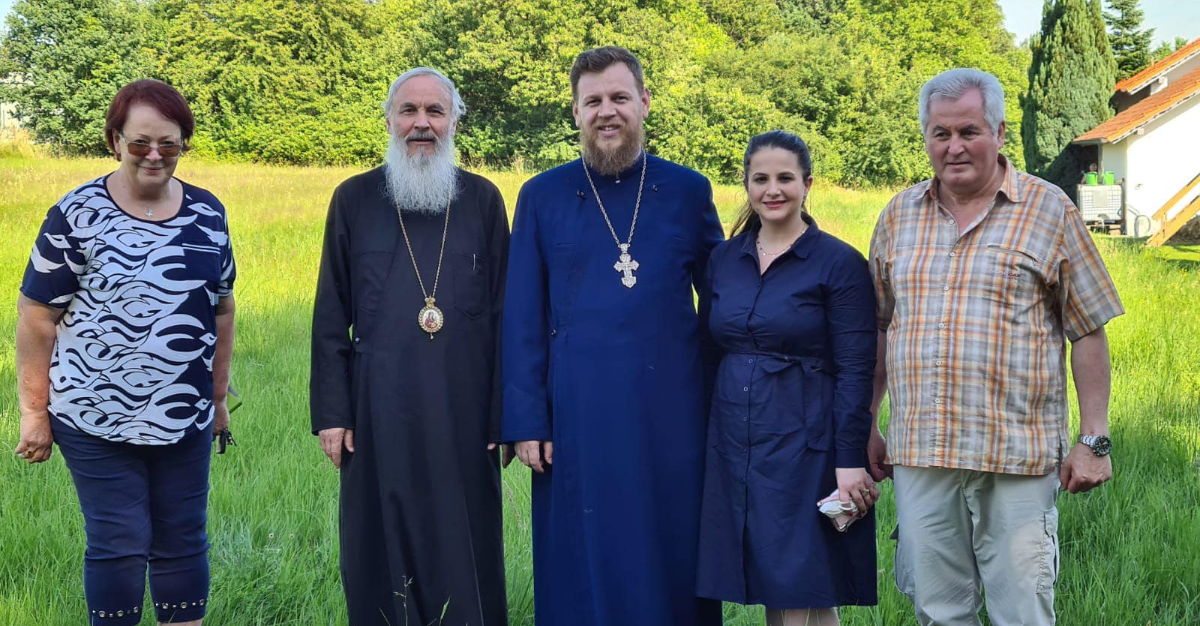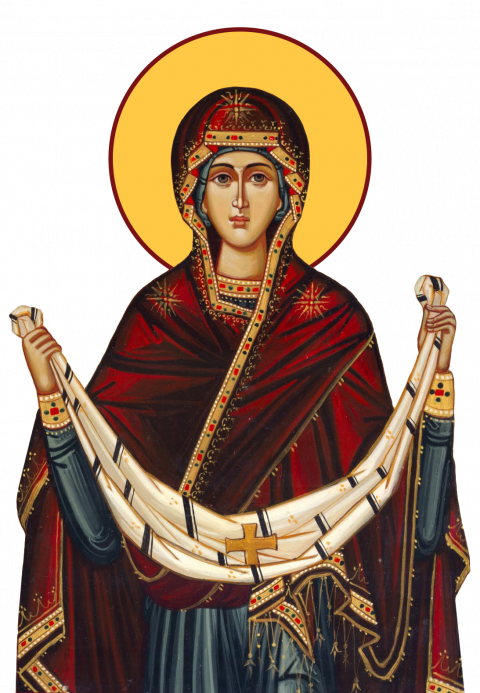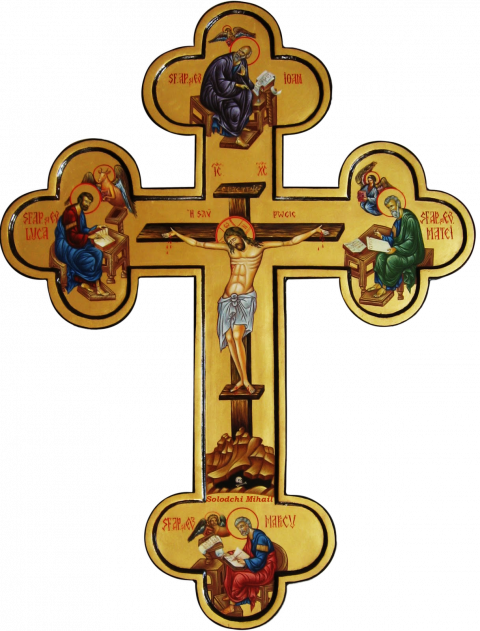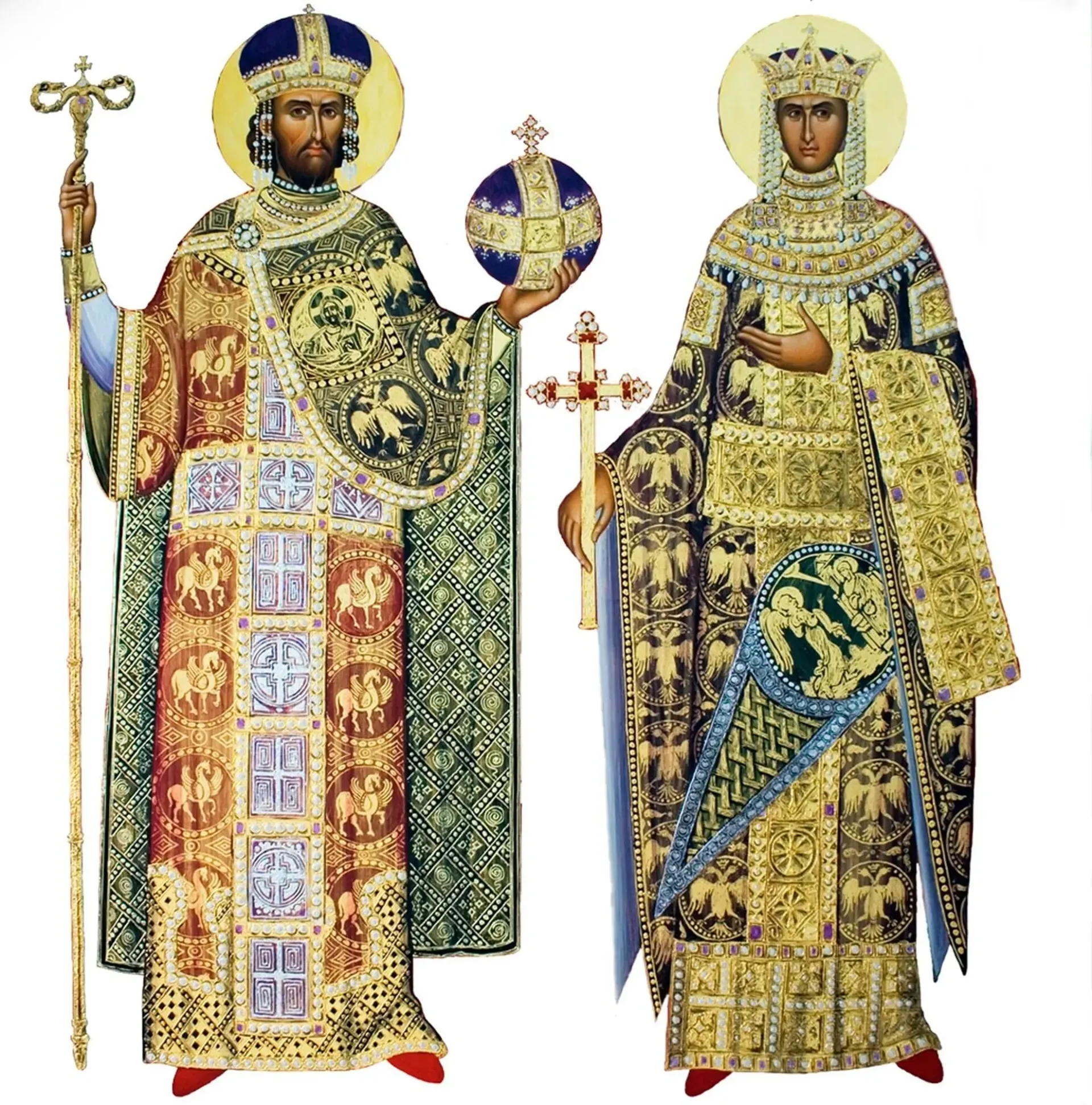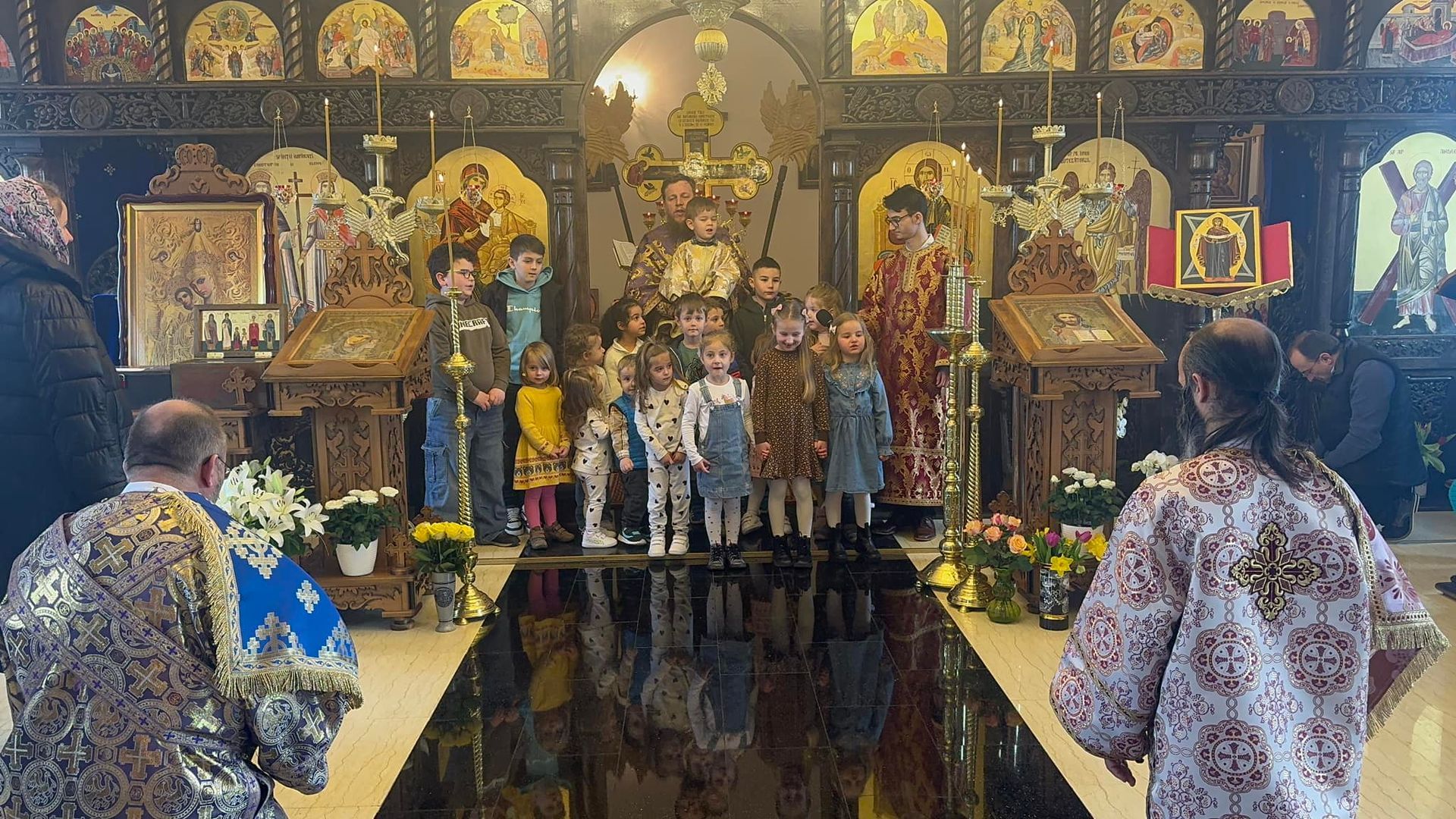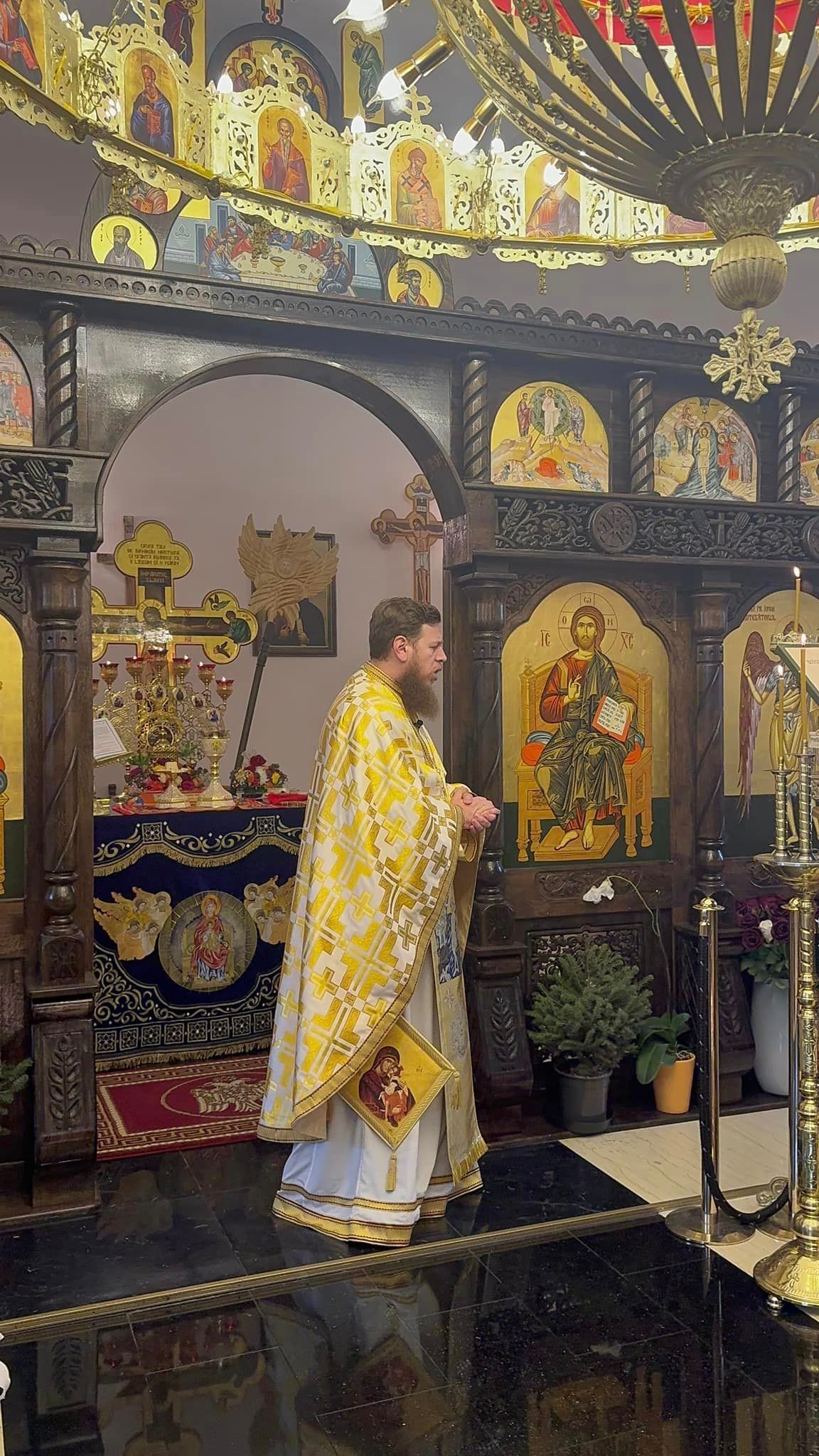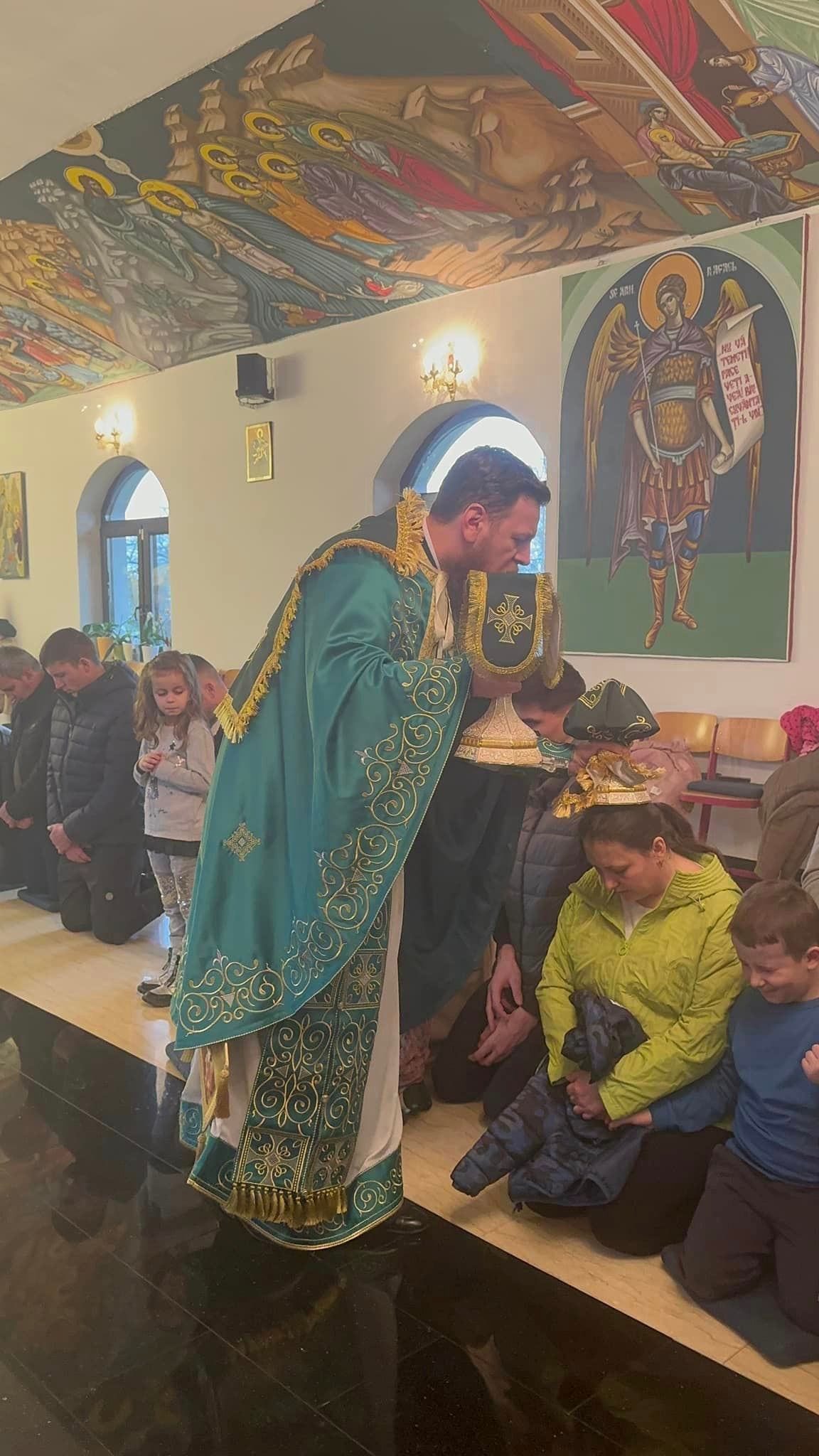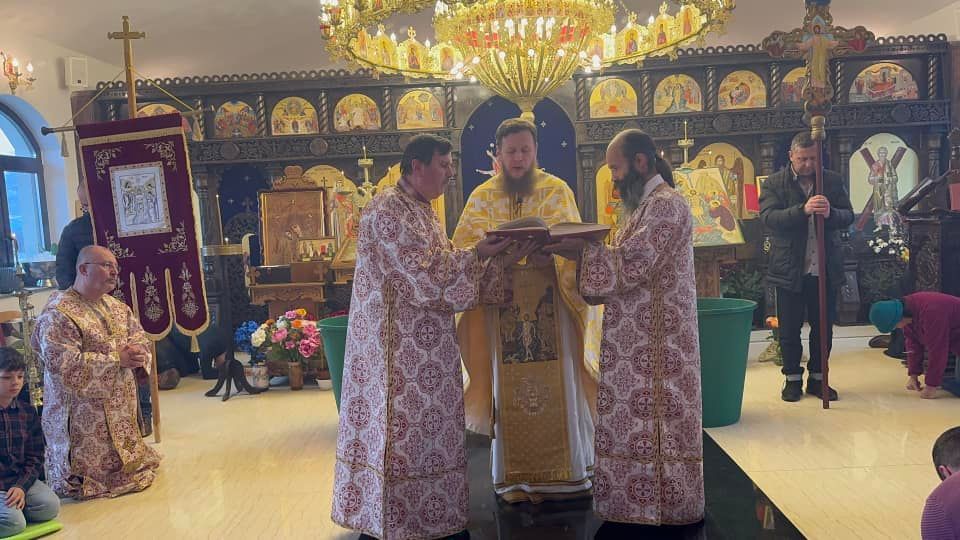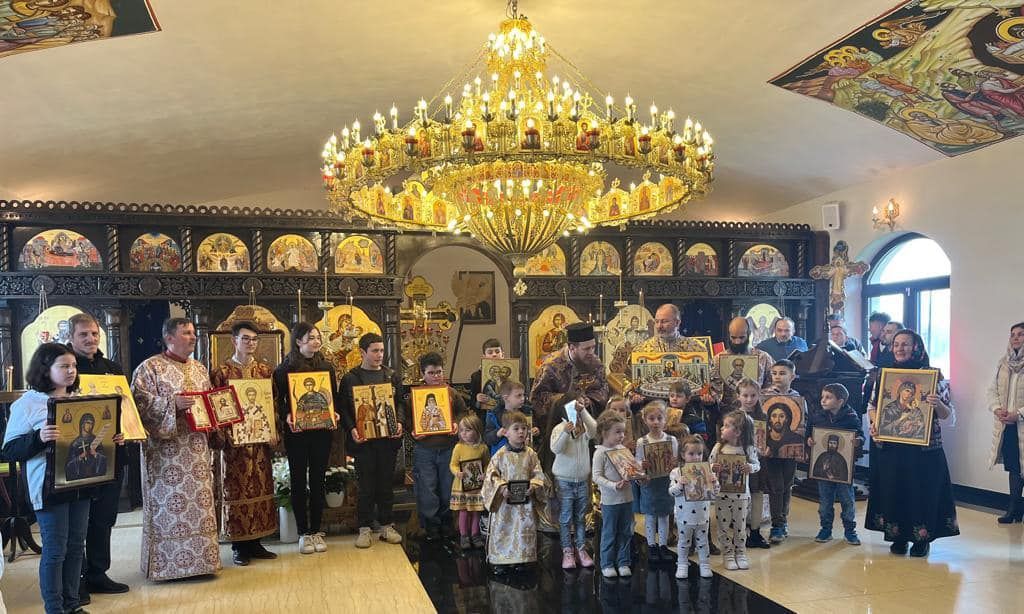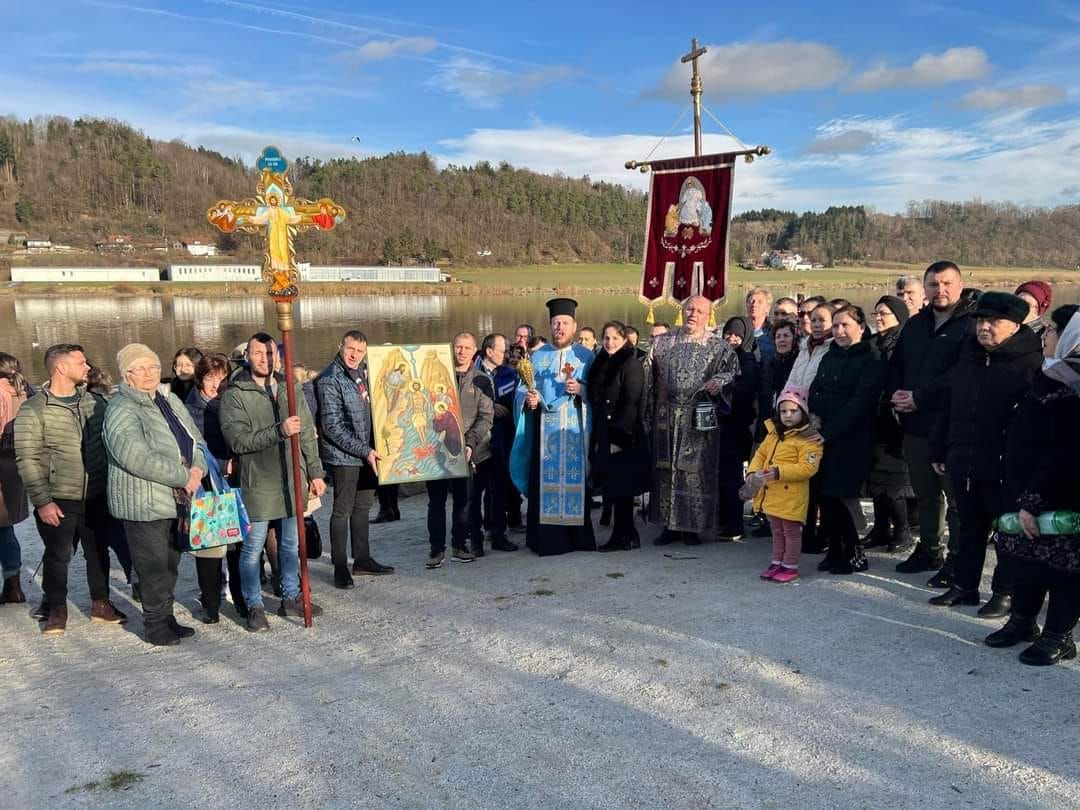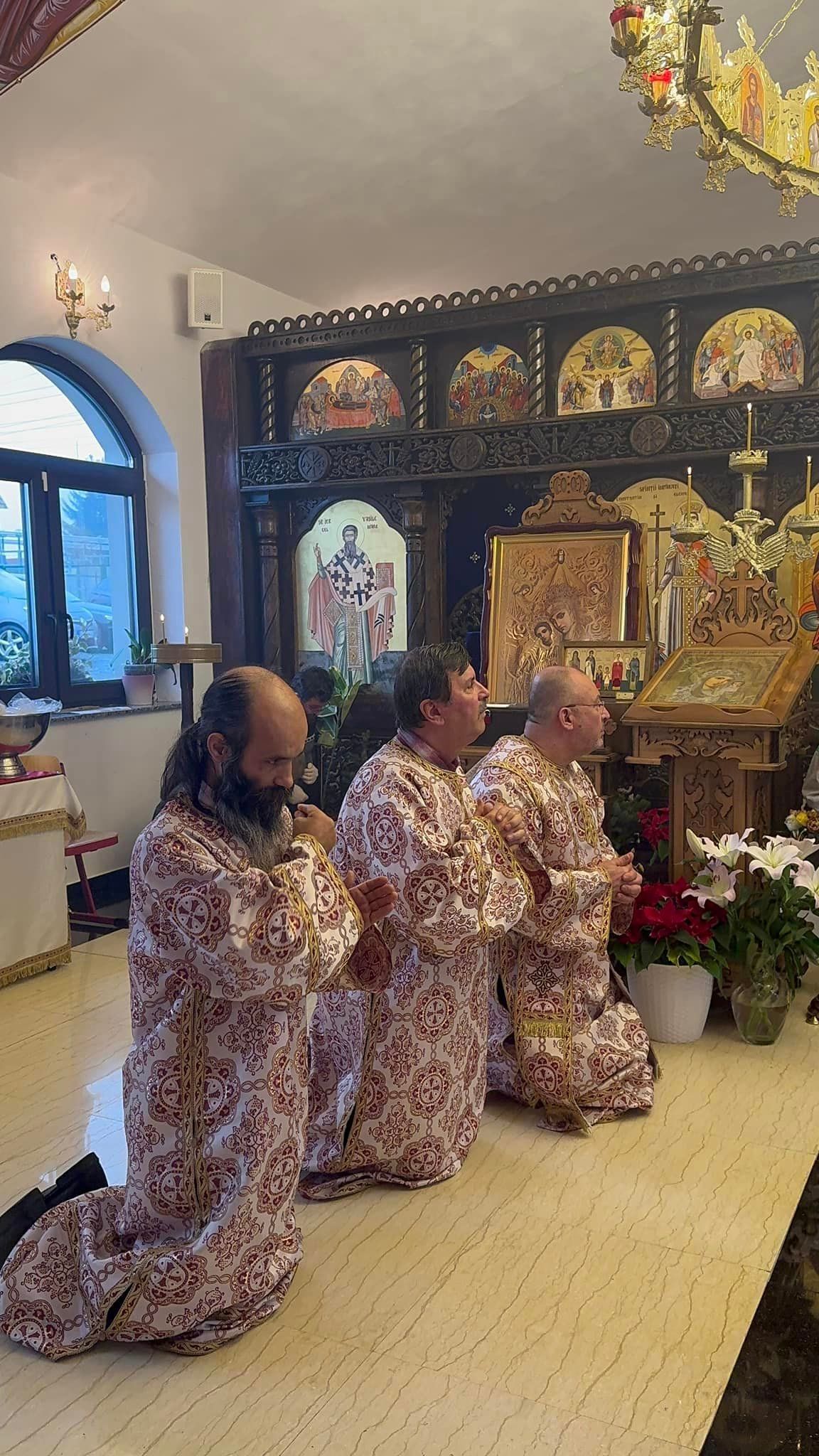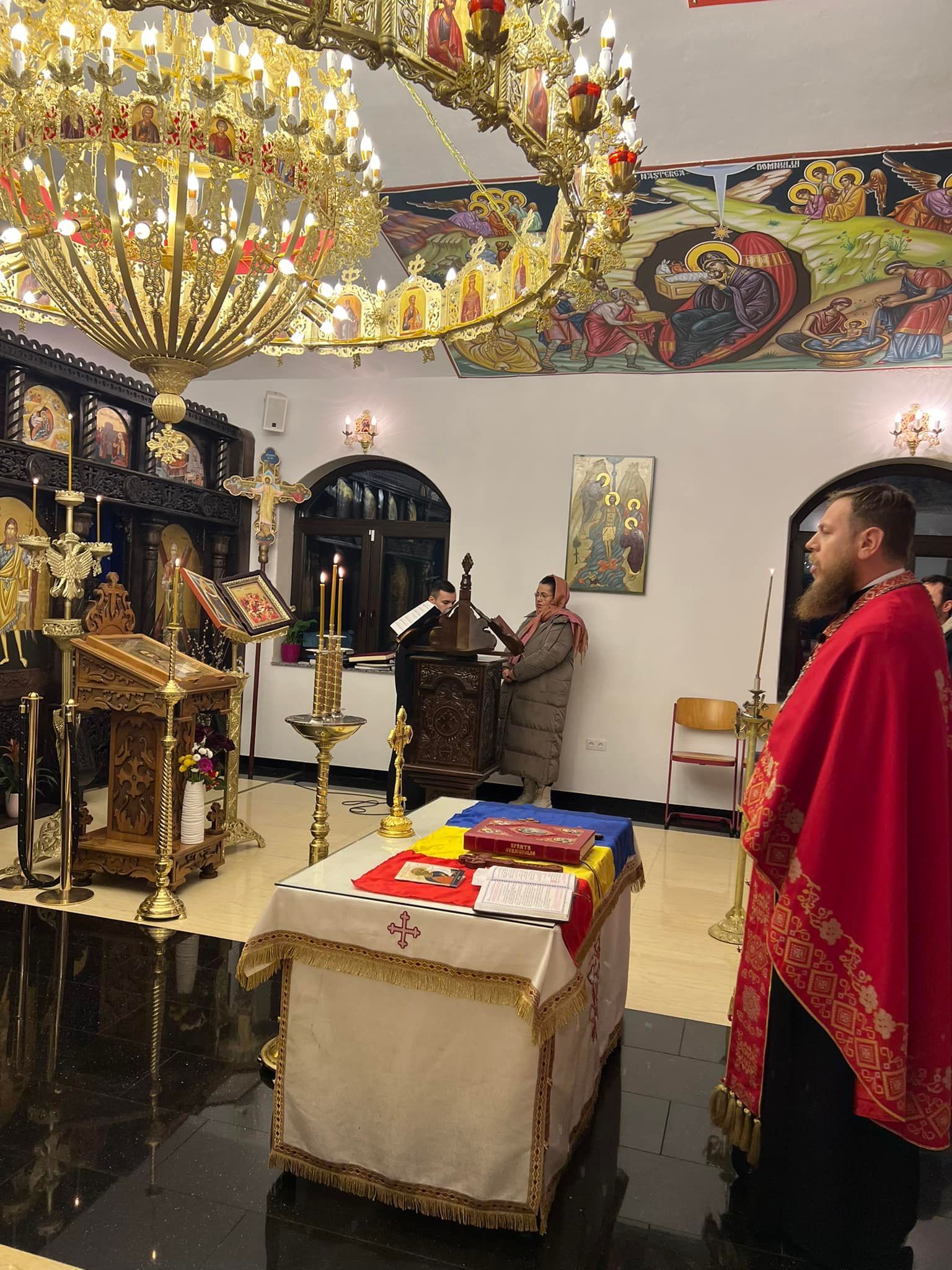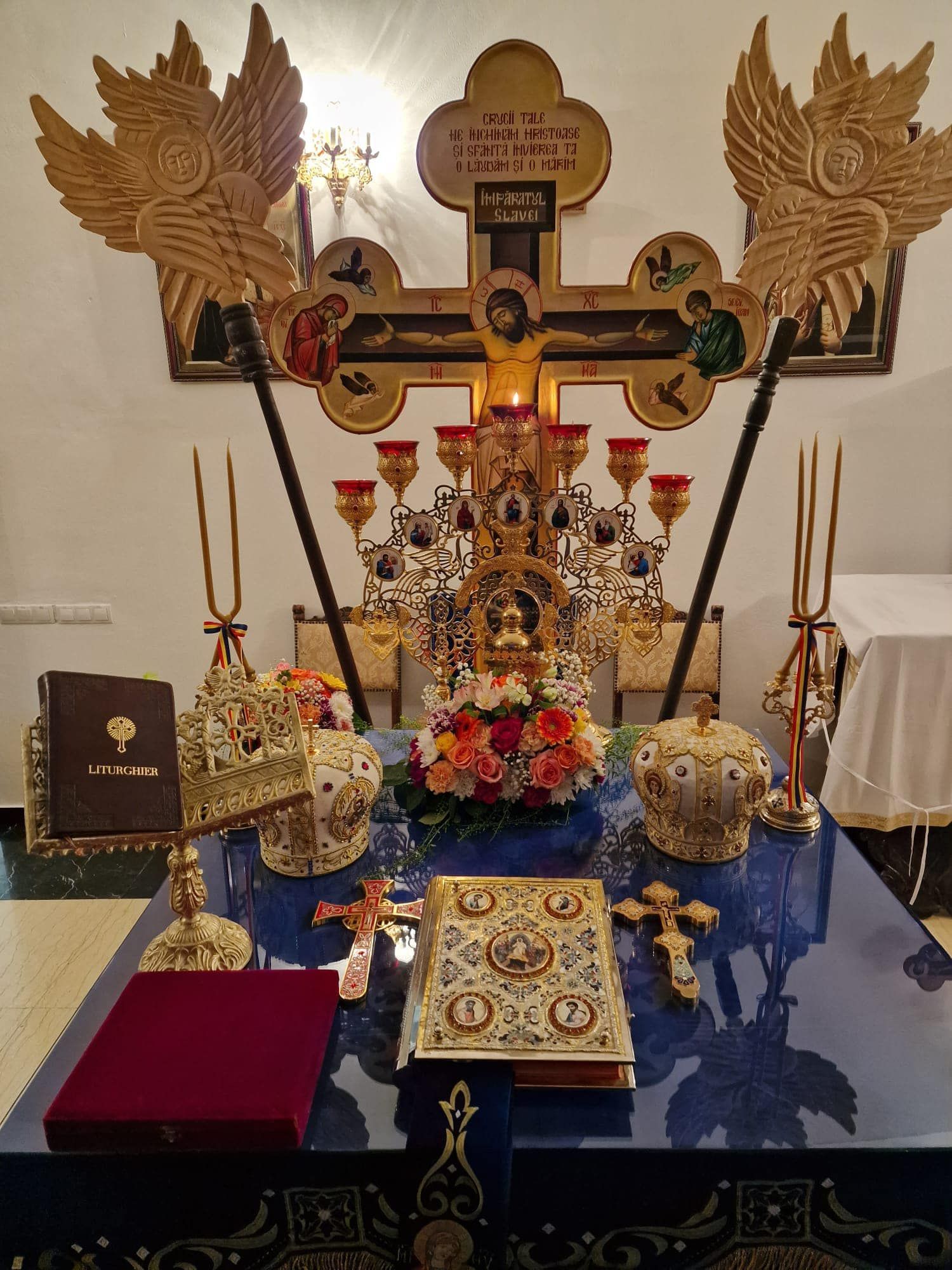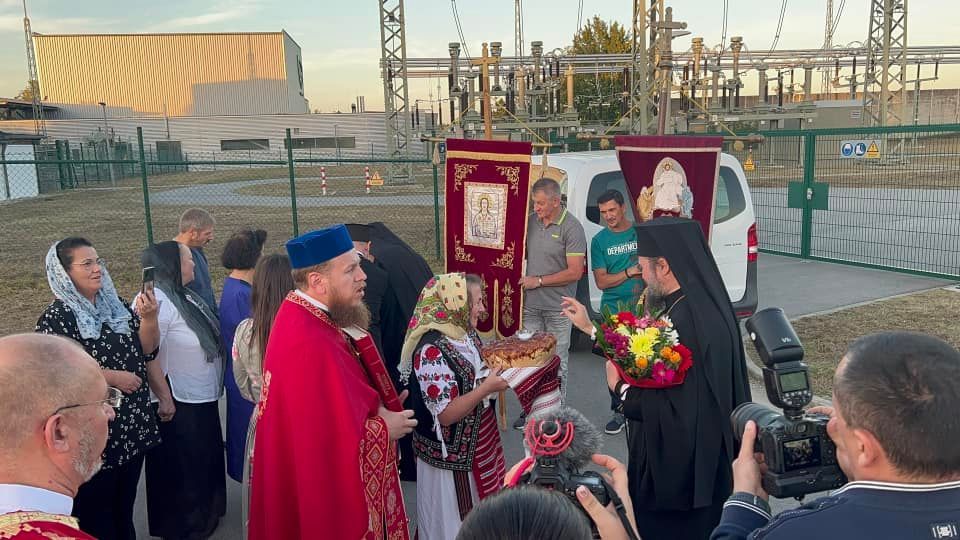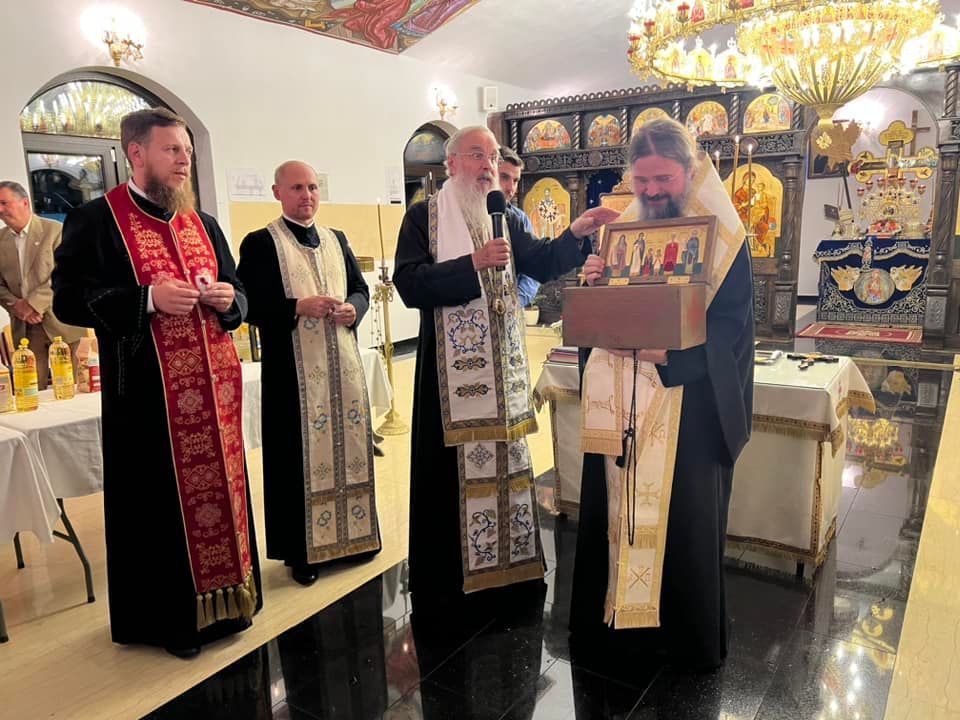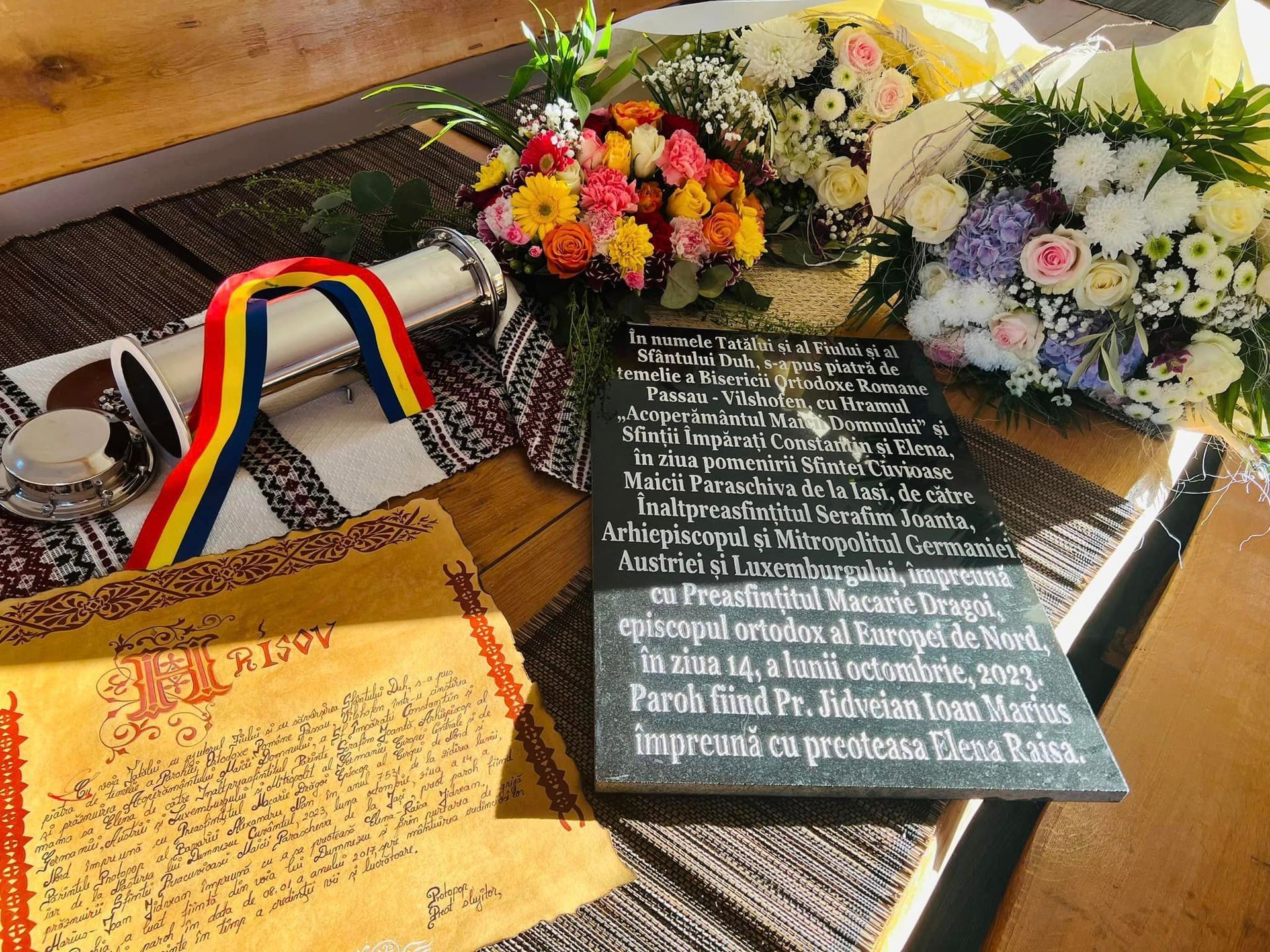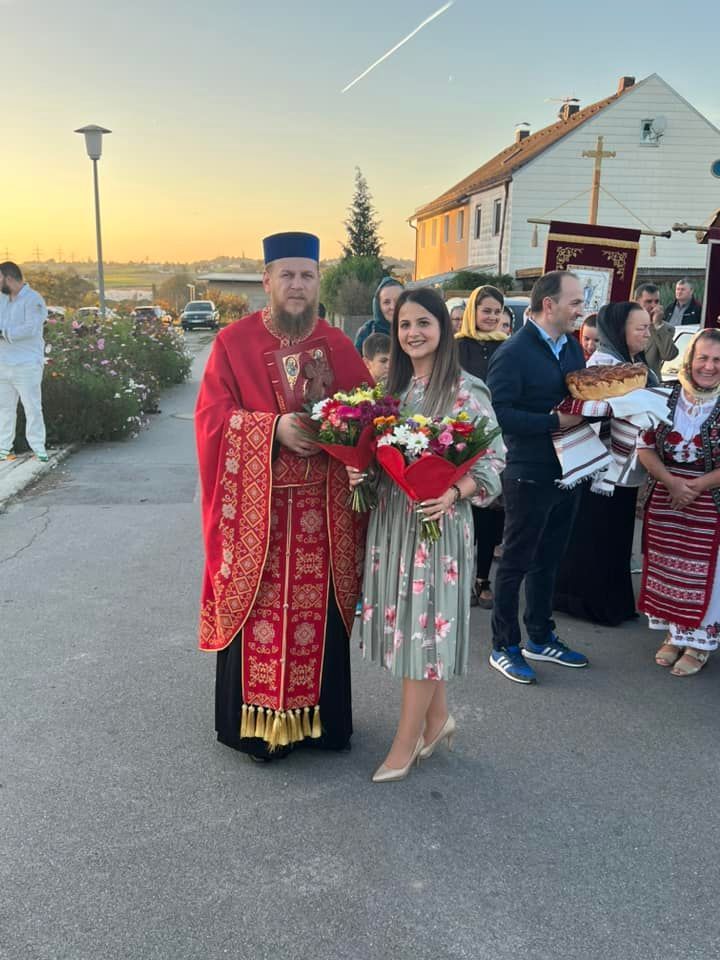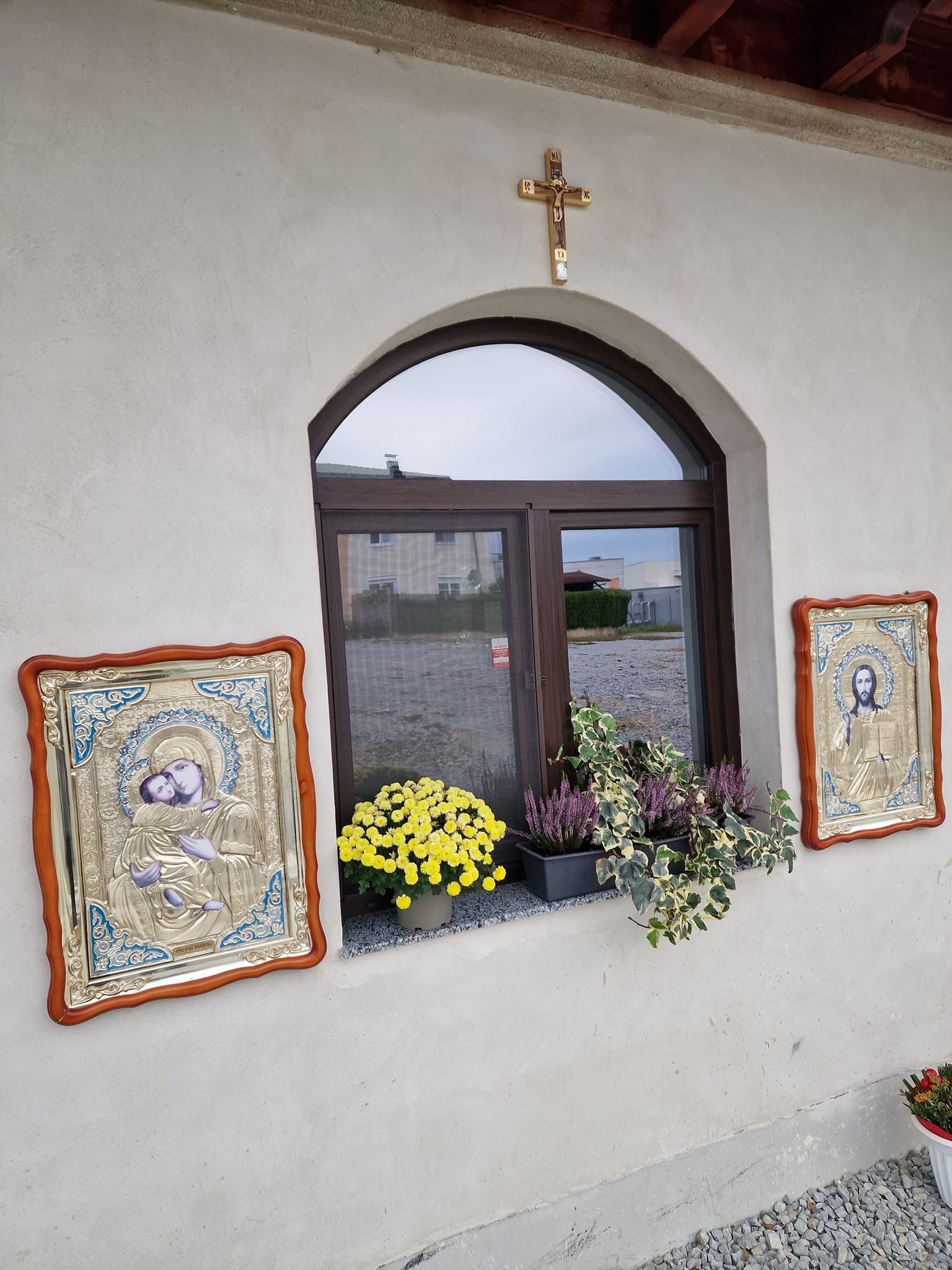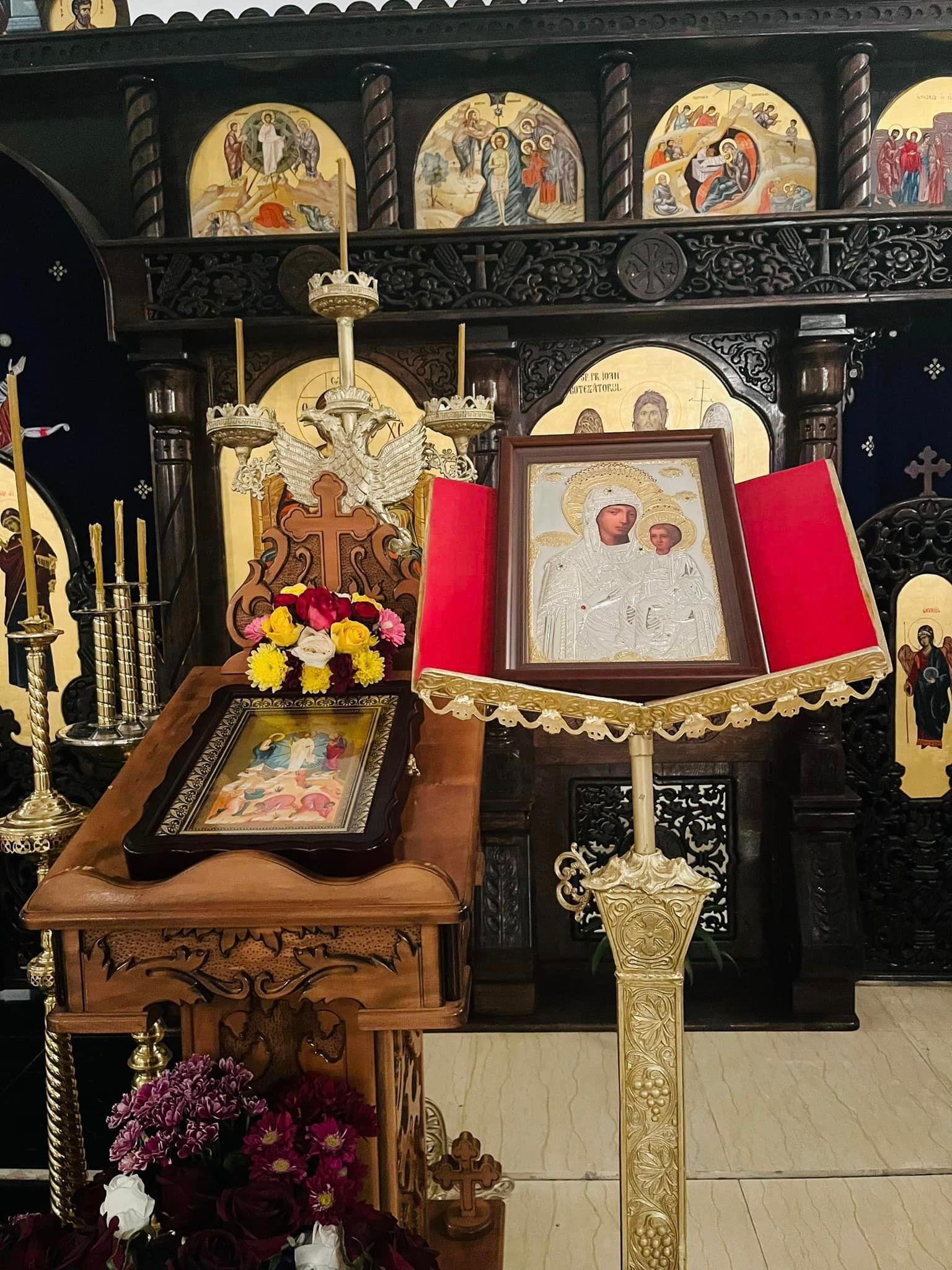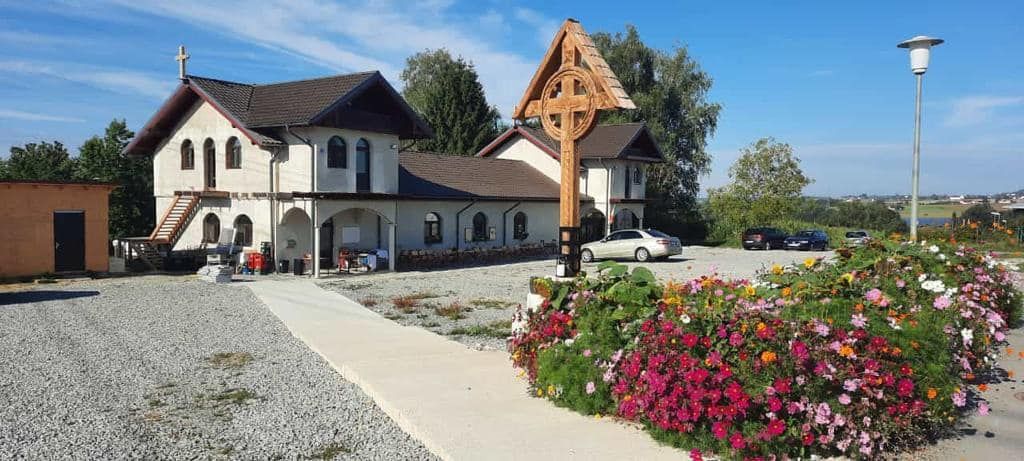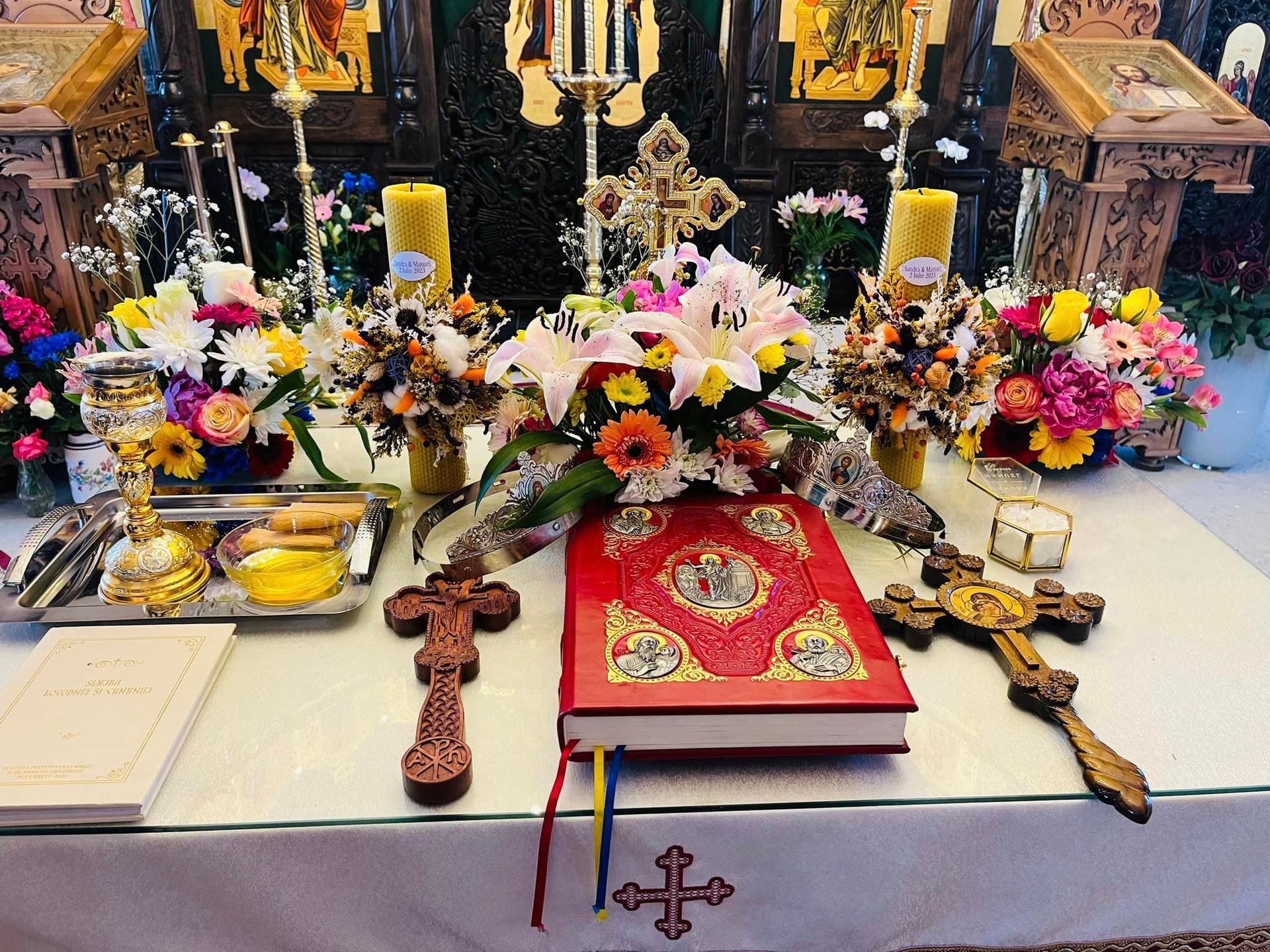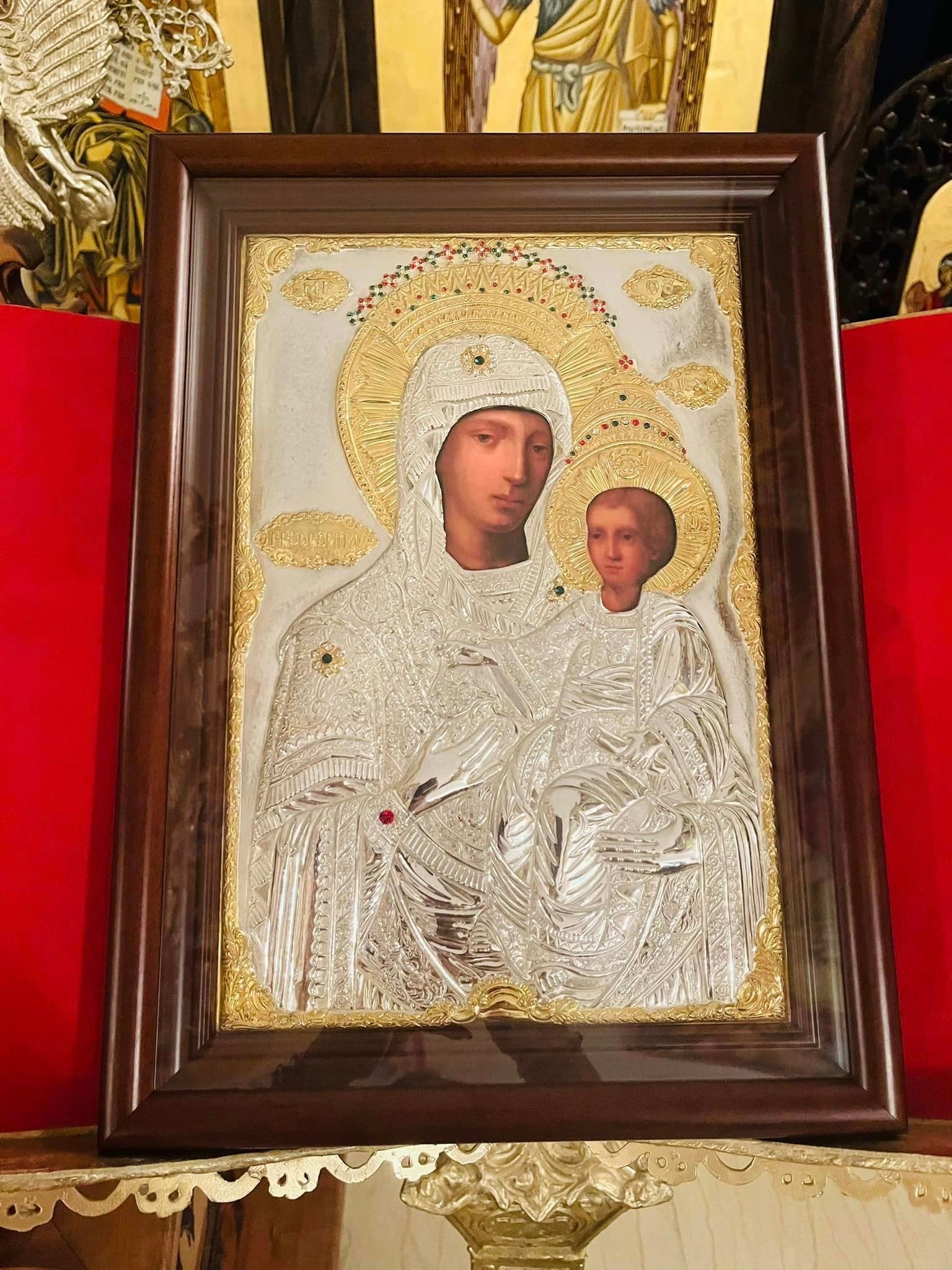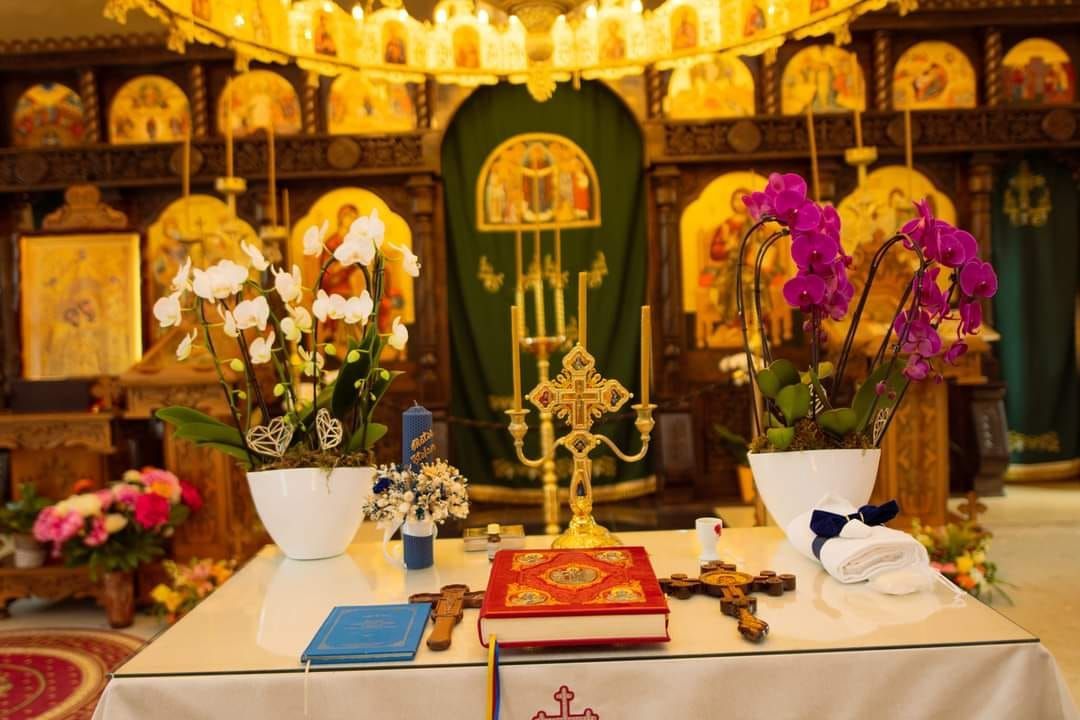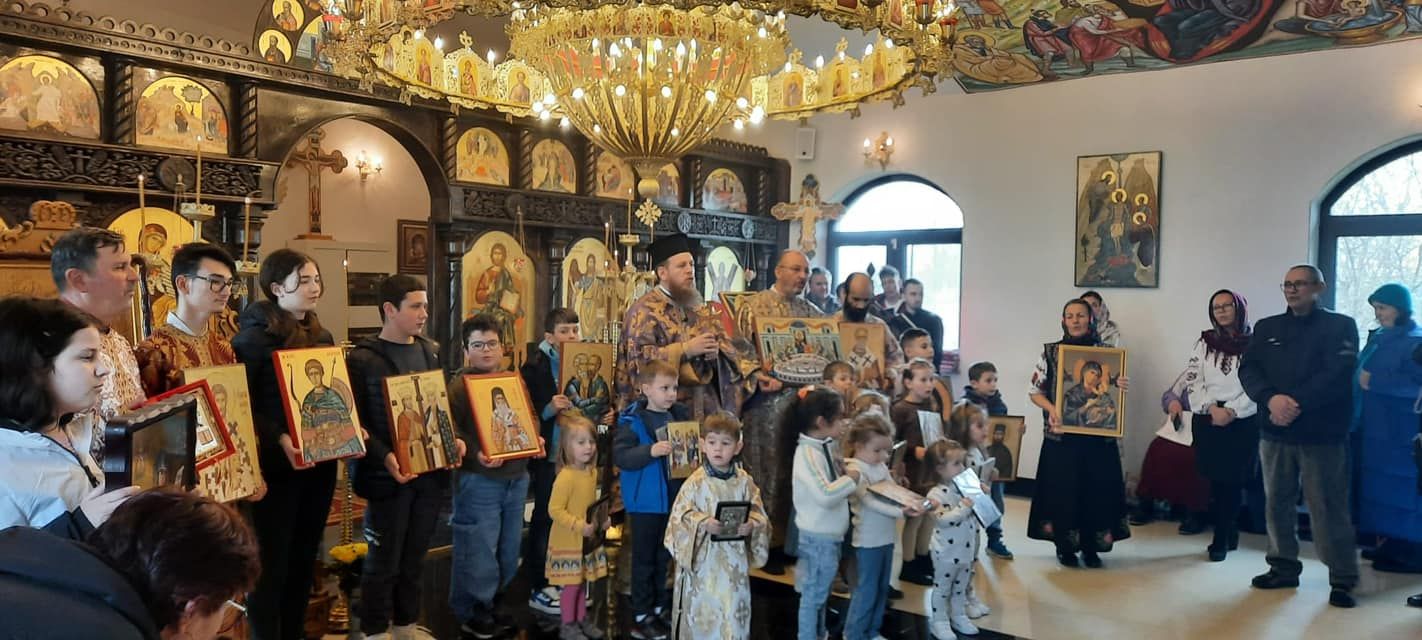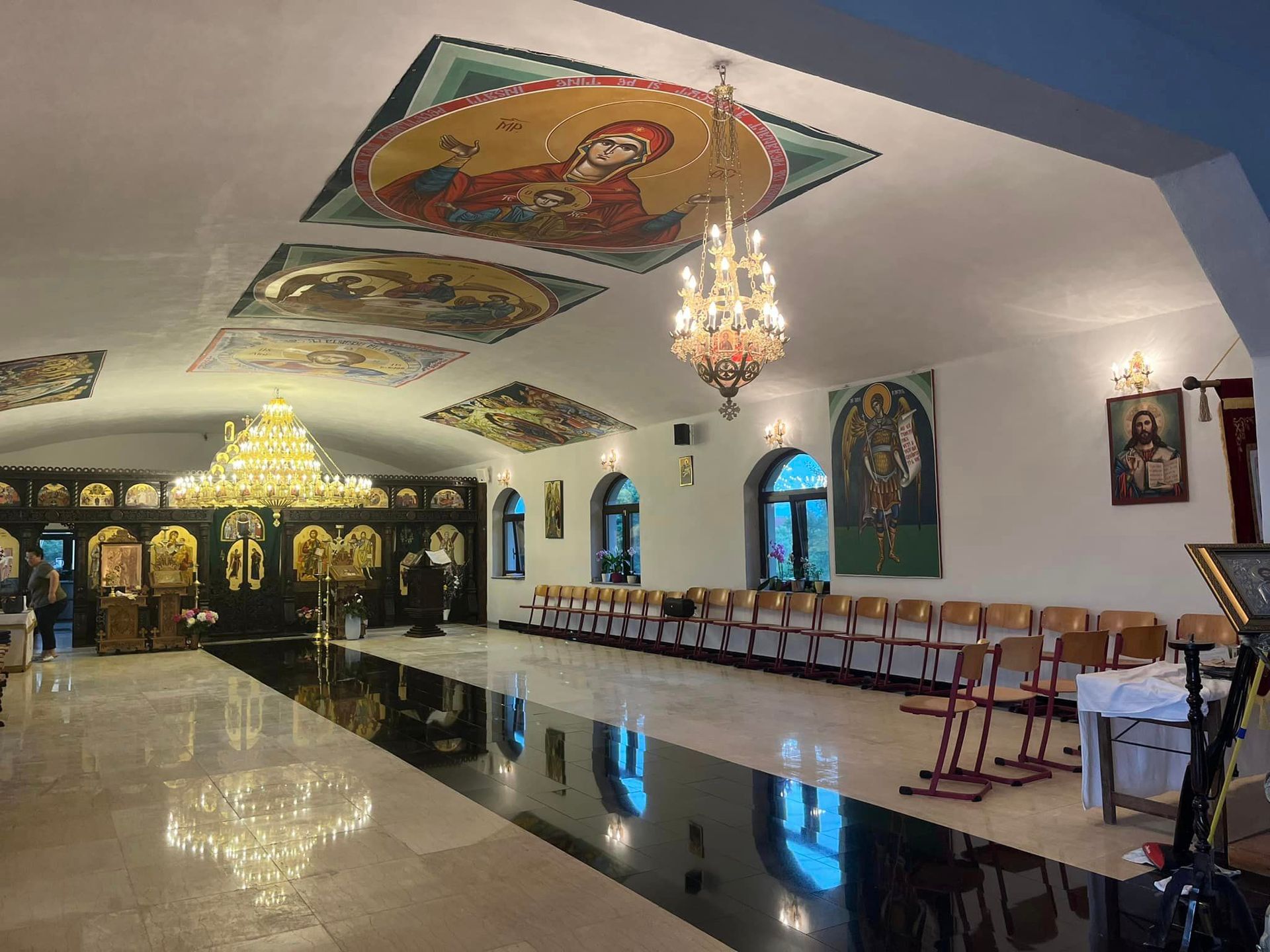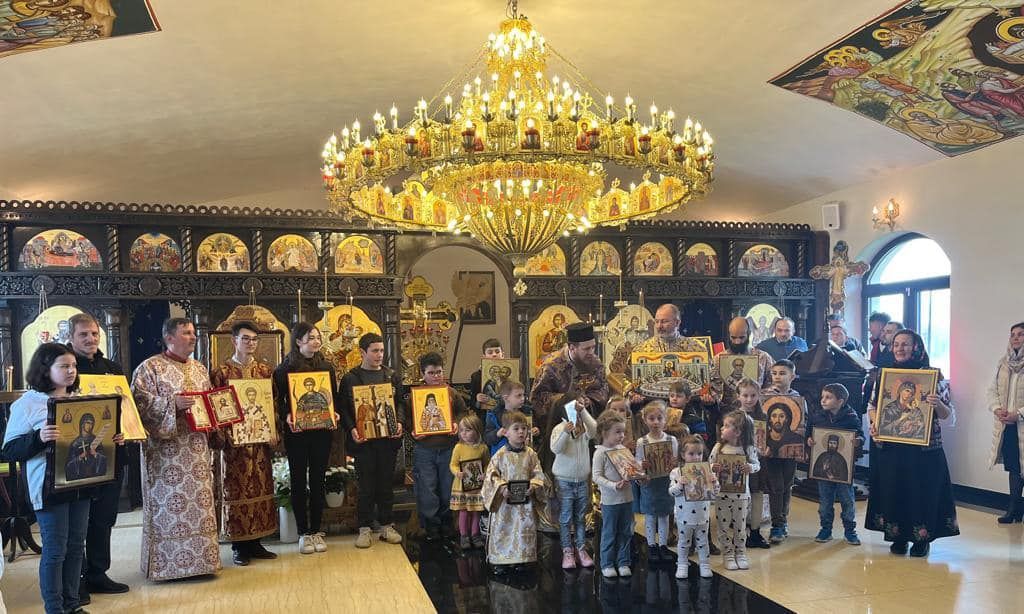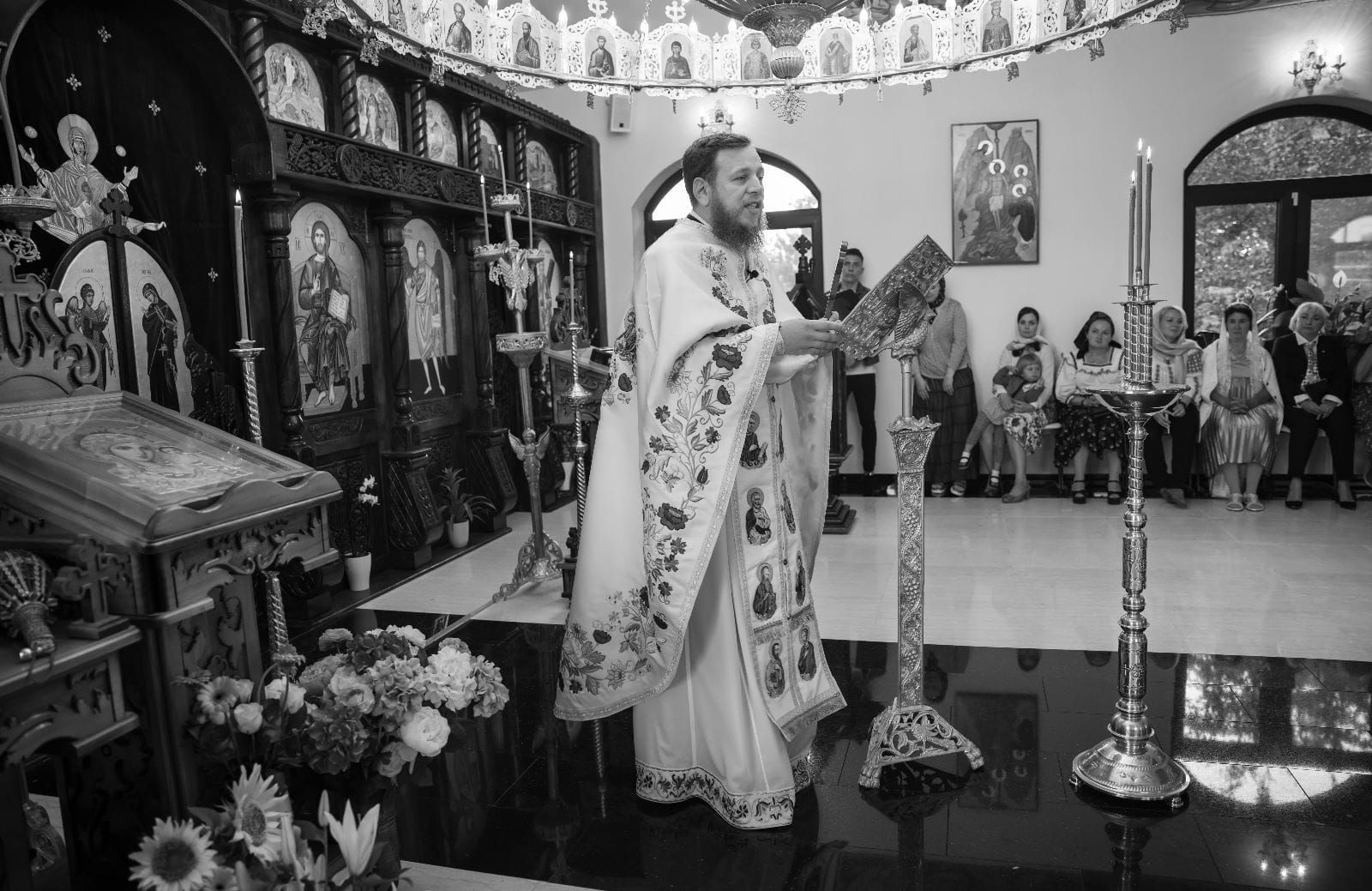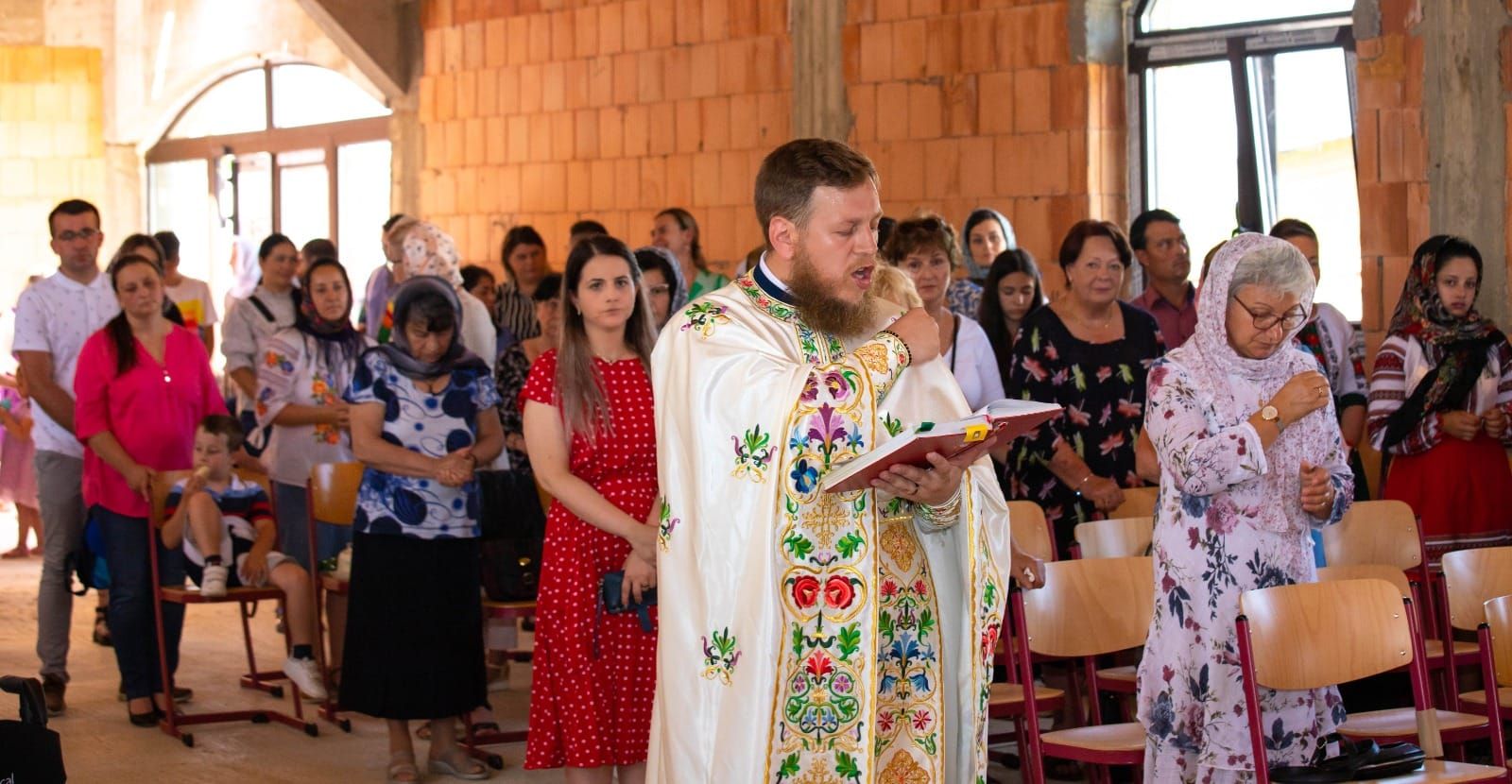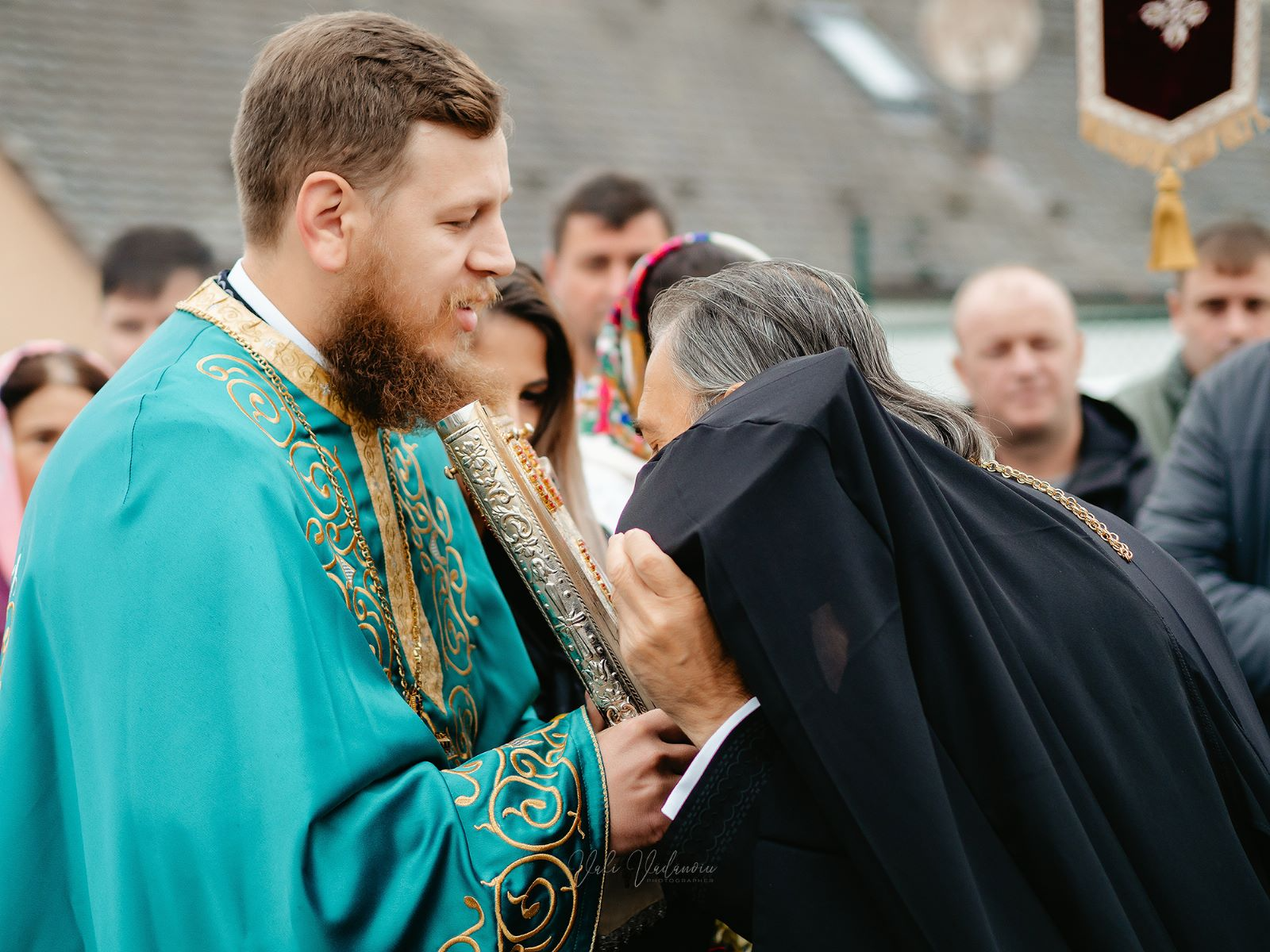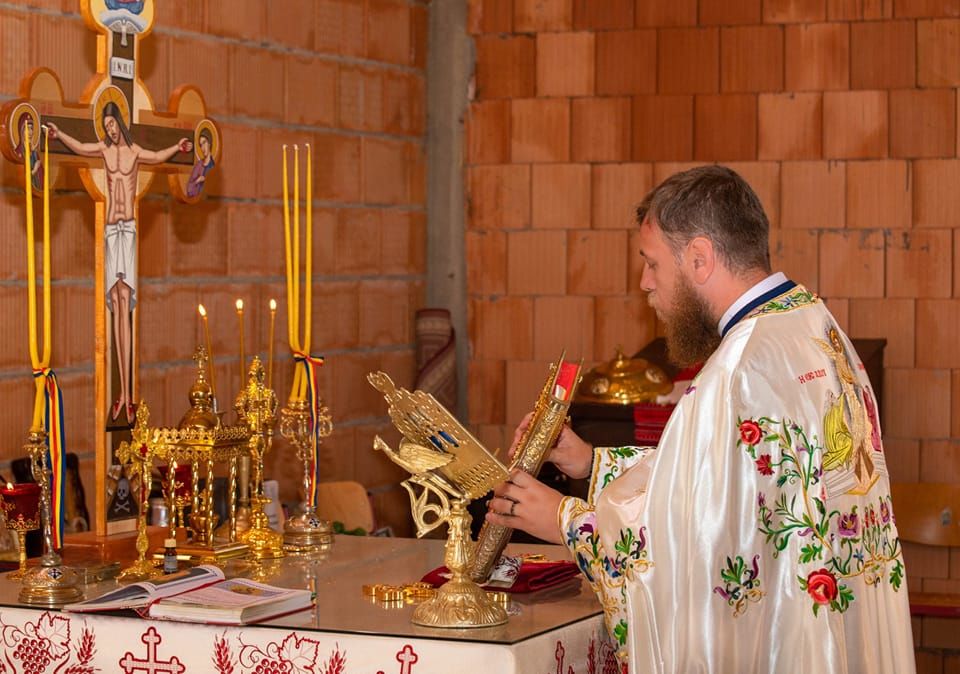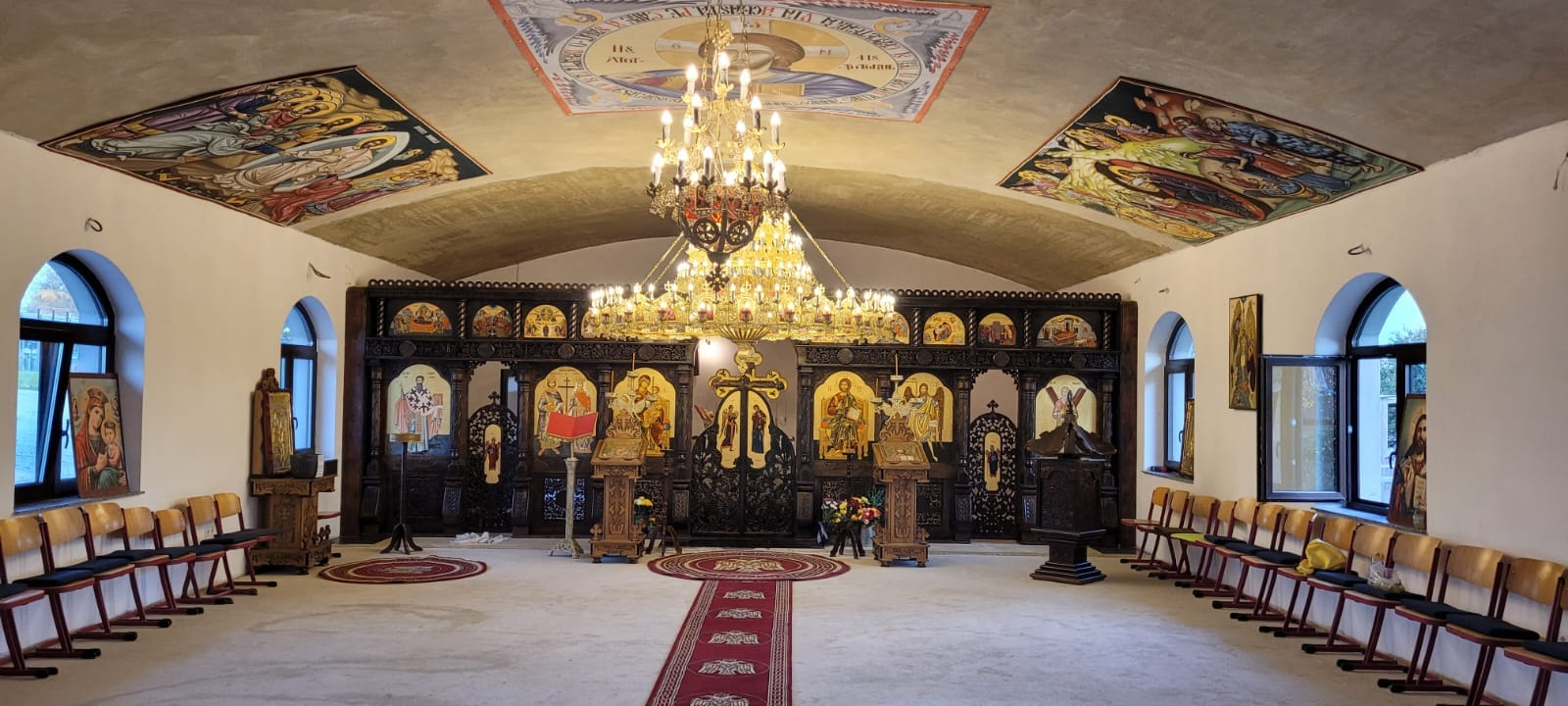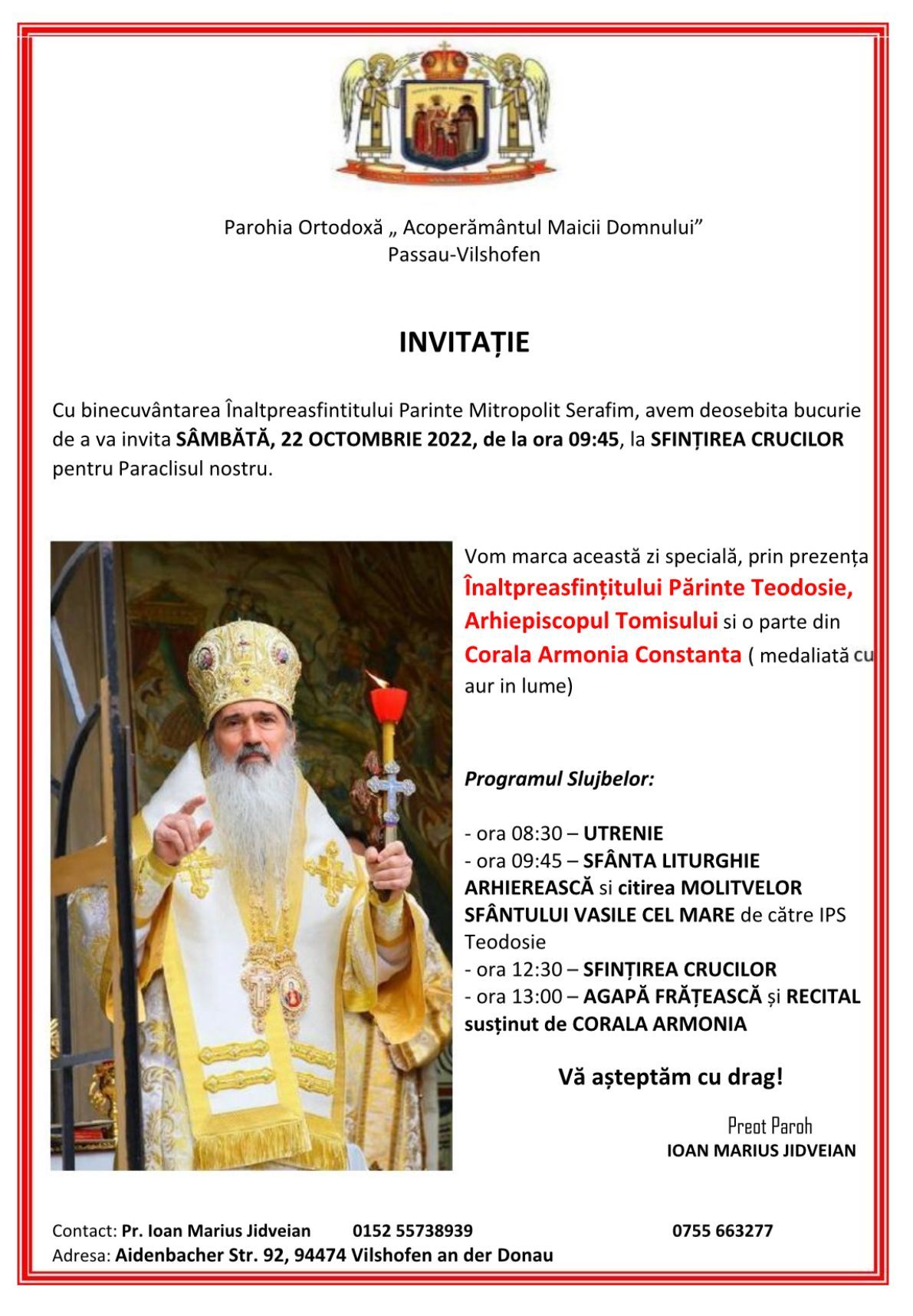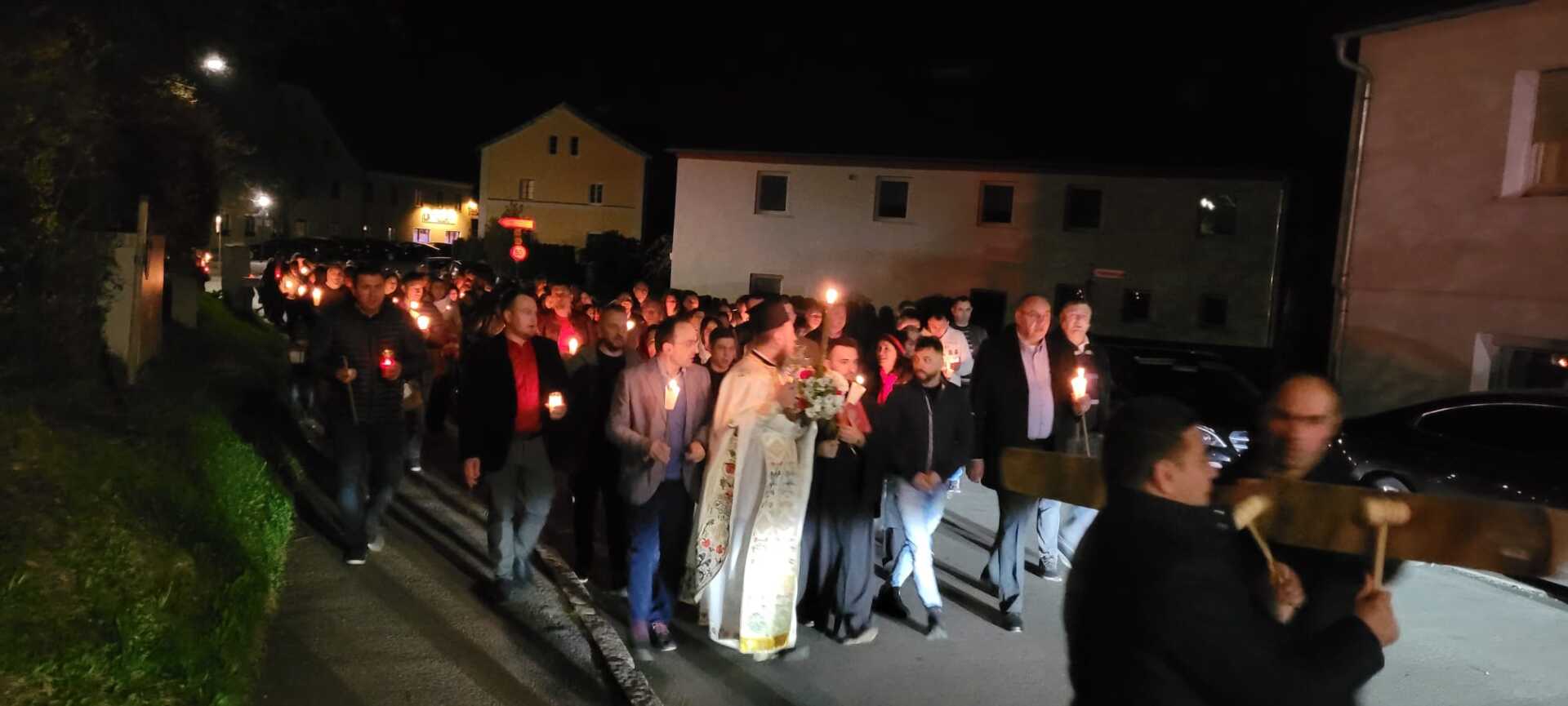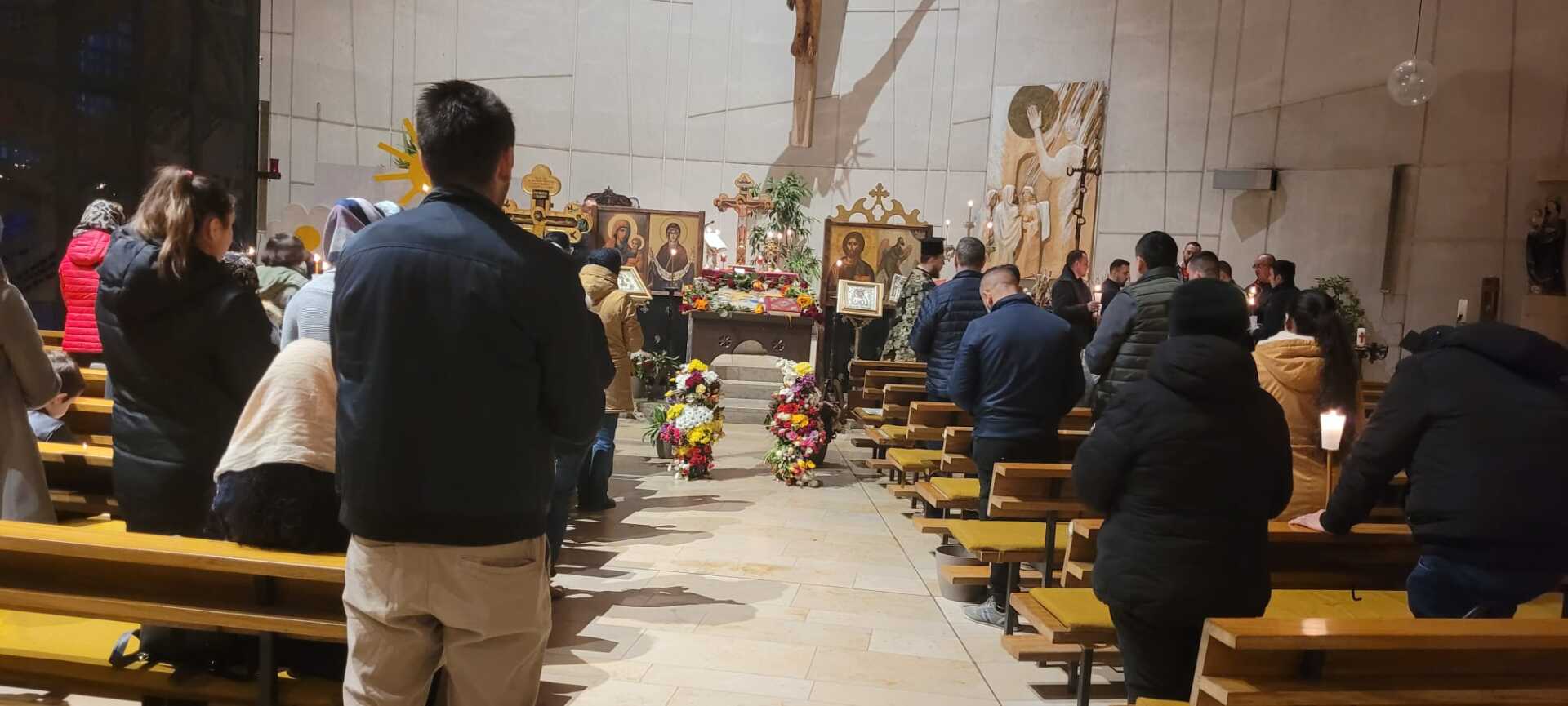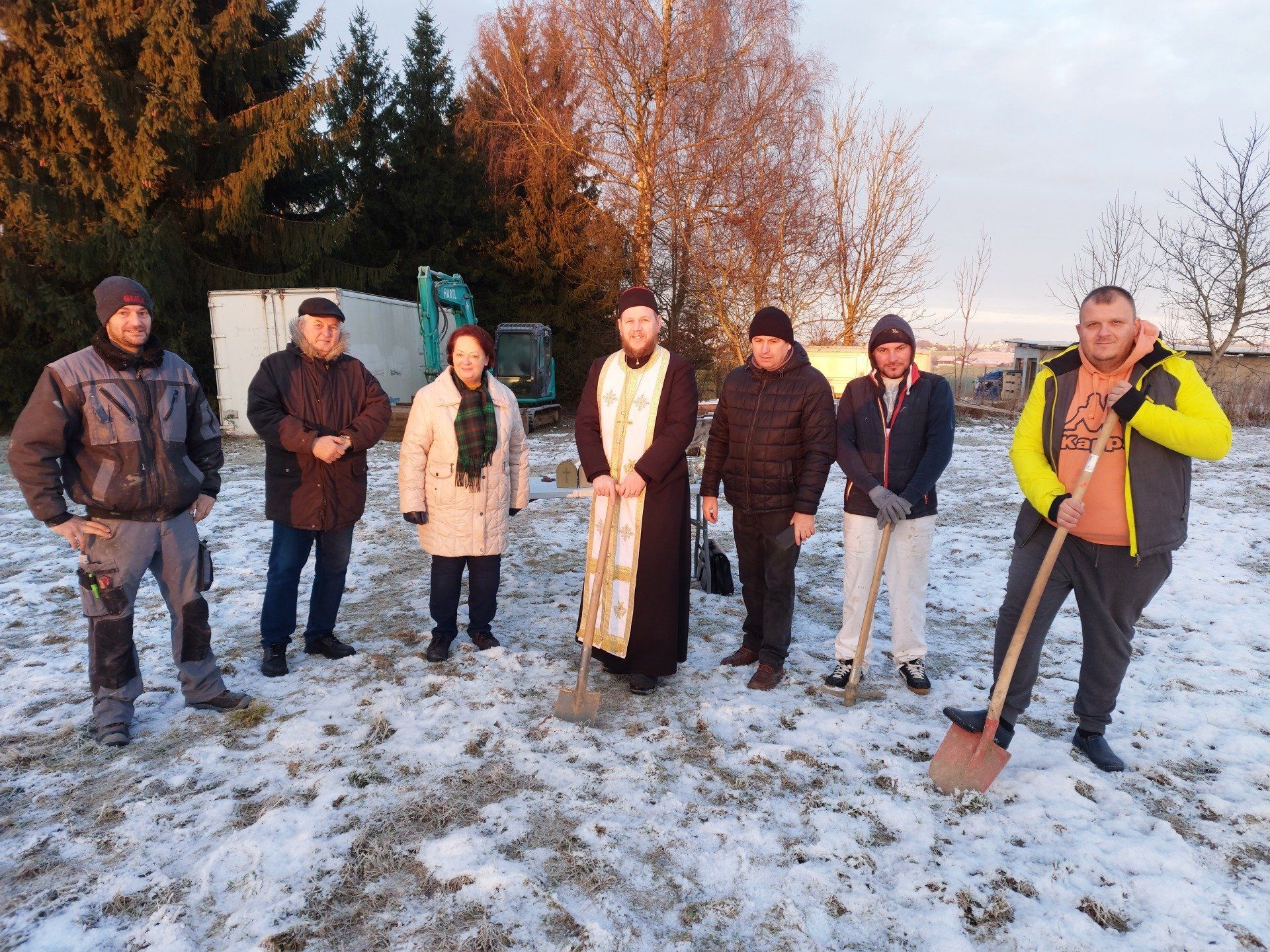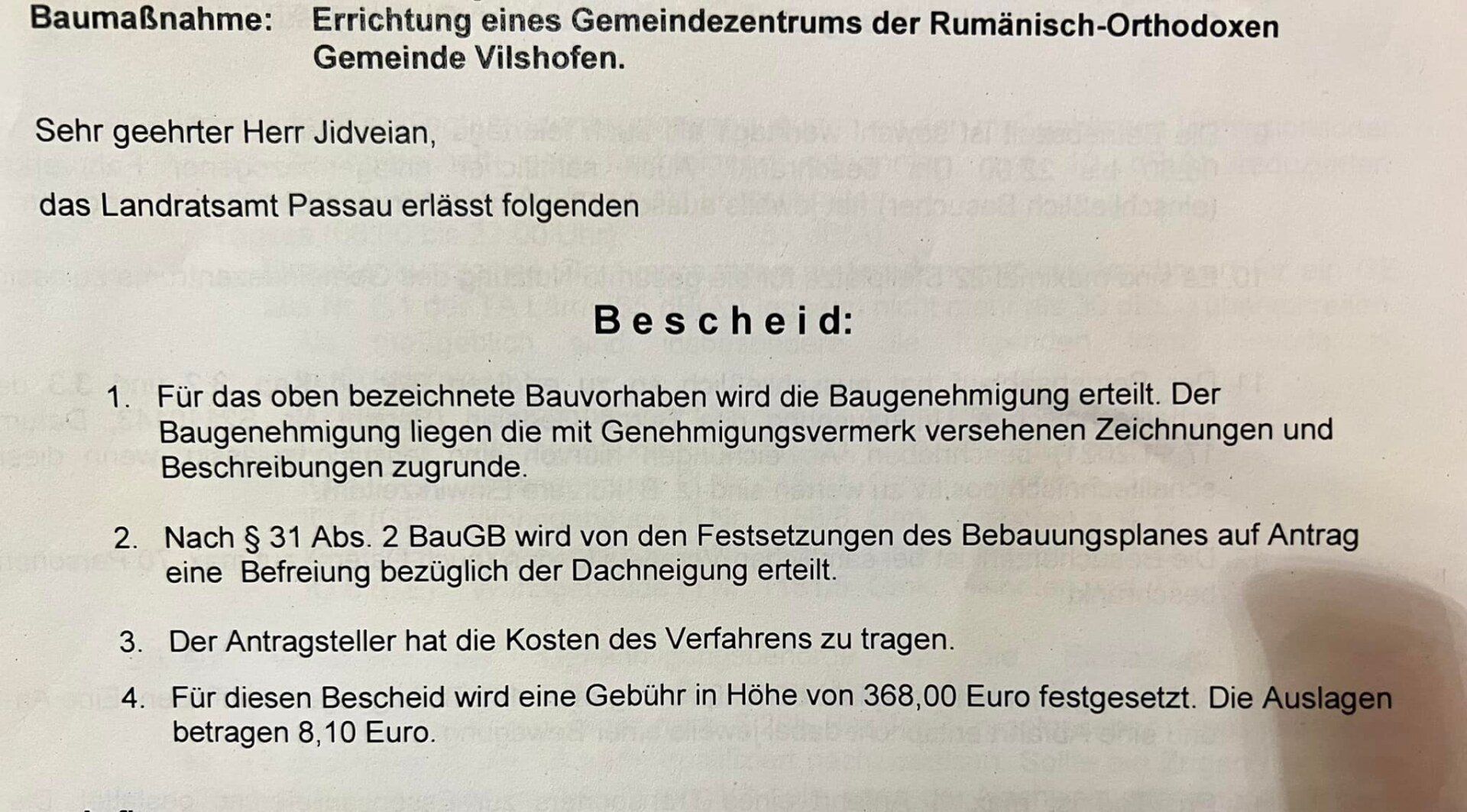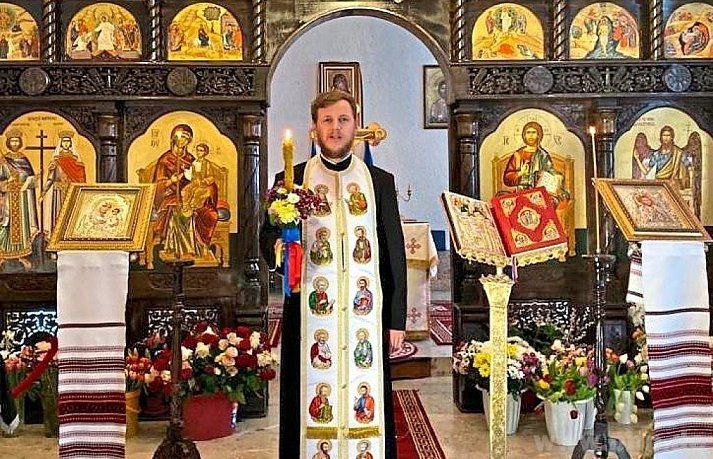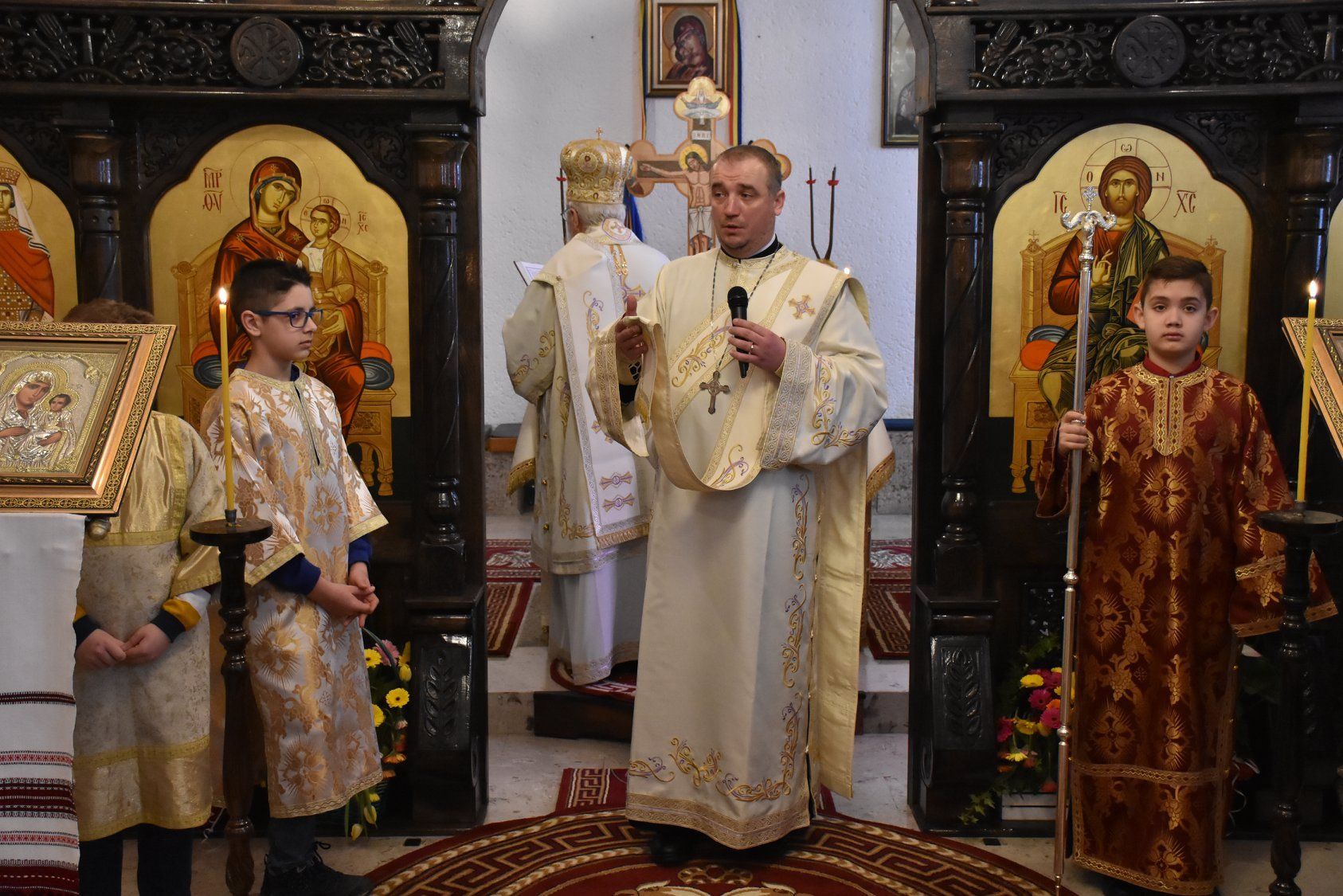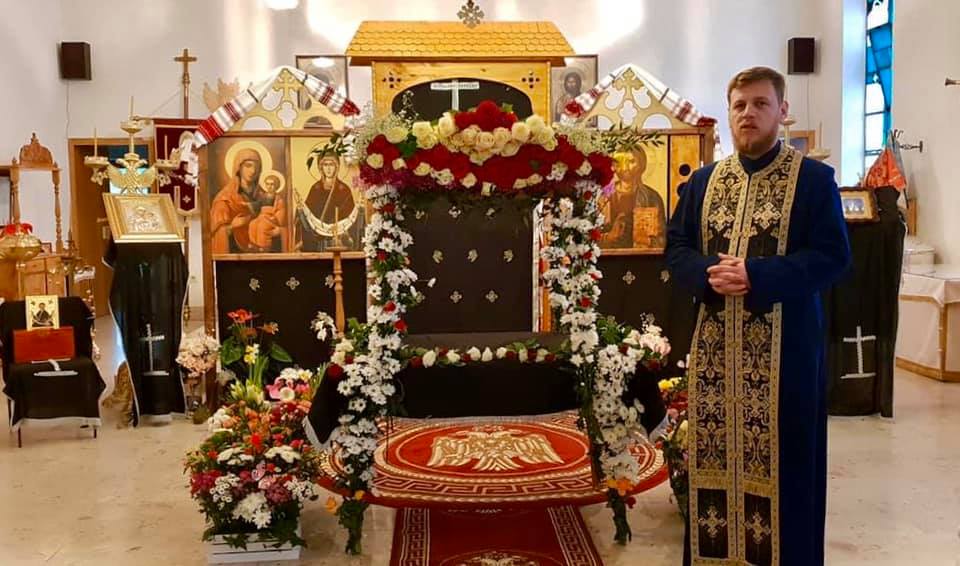"As sight is greater than all the senses, so prayer is greater than all good deeds" (Pateric, ch. 22)
About praying in spirit and in truth, let's see what it means to pray in spirit? To pray in the spirit means to lift up our mind and soul to God in the time of prayer. Only the prayer made with the mind from the bottom of the heart can truly be called spiritual prayer, that is, made in the spirit. What does it mean to pray in truth? It means to pray with the true work of all divine commandments, that is, of all good deeds, because man is double, being made up of soul and body. When the mind ascends unseen to God at the time of prayer, and the body, which is the seen part, labors at the work of God's commandments, then the Christian becomes a true worshiper of God in Spirit and in truth. No one can pray in spirit and in truth, if he prays only with his mind and does not work with his body to do the commandments of God, because the commandments of God are the truth, according to the testimony of the Holy Scripture which says: "All the commandments Yours are truth "(Psalm 118, 86).
God is love" (1 John 4.8,16) and love is from God (1 John 4.7)
Our love for God
If we respond to God's love with love, such a unity is achieved between us and God that we are "one spirit" with Jesus Christ, so we remain in Him and He in us, we live in Him and He in us, becoming the hall of the Holy Trinity and participating in her life by grace. "Behold, I stand at the door and knock - says the Savior. If anyone hears My voice and opens the door, I will come in to him and dine with him and he with Me" (Apoc. III, 20). And this "dinner" means union: "He feasts in Me and I in him" (John VI, 56). Because "God is love and he who remains in love remains in God and God remains in him" (1 John IV, 16).
One day, asking him how our love for God should be, Father Porphyry told me:
- Our love for God, son, must be very great and not weakened by wasting it on other things. I give you the following example. Man seems to have a kind of battery inside him that contains a certain amount of energy. When he wastes this energy on things other than the love of God, the energy he has left for the love of the Lord is too little and sometimes almost nil. But when we direct all our energy to God, it means that our love for Him is very great.
Let me tell you something else. Once a girl fell very much in love with a young man named Nikos. Every night the girl got up secretly, jumped out of the window and went barefoot over the thorny fields to meet her beloved, although she reached him with bleeding feet. When he returned home, his mind always wandered to Nikos. Whatever he worked on and whatever he did, Nikos haunted his thoughts. So, my son, all your strength must aim at God, and your thought must always be on Him, because this is His will.
(Anastasios Sotirios Tzavaras, Memories about the Elder Porfirie, Bunavestire Publishing House, Bacău, 1999, pp. 0049 017634266176
God's justice
We cannot interpret certain concrete events in a simplistic way, because in this way we advance the judgment of God. In general, however, we can say that divine justice often works even from here, God punishing the unbeliever when he shows his lack of faith. However, there are also situations when God allows something to happen. According to Saint Gregory of Nazianzus, "ours is in the hands of God" and "nothing happens without God". However, some God desires and blesses, and others He does not, but He allows them and lets them happen.
Now, how do we know when God is doing one way or the other? We humans, with our feeble minds, cannot discern each individual case. Divine justice often comes in a flash and strikes the unbeliever. This cannot be denied, no matter how much some contemporary people want to exclude the reality of God's justice and portray Him only as love that allows all things, so therefore there is no need to fear Him. "Do whatever you want," they say, "just say, 'I love God'." The Church does not agree with this thinking. Likewise, neither the Scriptures nor the Holy Fathers. What does the scripture say about Herod? The people shouted, flattering him: "Divine and not human voice!" (Acts of the Apostles 12:22) "And immediately the angel of the Lord struck him, because he did not give glory to God, and being eaten by worms, he died" (Acts of the Apostles 12:23).
(Archimandrite Epifanie Theodoropulos, Let's give our whole life to Christ God, Predania Publishing House, Bucharest, 2010)
Christ – the Way, the Truth and the Life
Yes, Christ is the Life of the world, because in Him the divine life participates in the life of the world, and the human existence in the divine; Christ, in His boundless love for us, assumed our existence mixed with pain and death, in order to make us partakers of His eternal life. Entrusted by this, let us strive to live in the light brought by the Savior Christ into the world through his naming and birth, believing and testifying with all our strength that human existence has an eternal meaning, which is fulfilled only by preserving and cultivating our relationship with God and in obedience to Him.
Yes!, for us, Christ represents "the Way, the Truth and the Life". He is the Way on which we will never go astray. He is the Truth that sets us free, clearing every corner of reason that often seeks the infinite in finite things, with infinite passion. And He is the Life that renews our daily life, if we always pray and share as often as possible with the Holy Mysteries, that is, with the Body and Blood of the Lord, so that we have Himself, the Christ-Life in us. In essence, from the expression "I am the Way, the Truth and the Life" we must understand that through faith and trust in the saving word of the Son of God, through the effort of each of us to translate the divine teachings into deeds, loving and helping our fellow men in hard trials, we will manage to overcome all the challenges of our ephemeral earthly existence.
If we believe that Christ the Savior is the Way or the road of our life, it means that we must let ourselves be guided by Him in every step we take on the journey of the years, calling Him constantly through pure prayer and strong faith, even if sometimes we will encounter stumbling blocks or sufferings. But walking on the path with Christ also involves the effort to separate ourselves from everything that separates us from the Lord; this is how St. Paul, the Apostle, urges us: "Let us walk decently, as in the day: not in revelry and drunkenness, not in debauchery and shameful deeds, not in quarrels and quarrels. But put on the Lord Jesus Christ and do not take care of your body for lust" (Romans 13, 0049 017634266176. Following Christ, we assume both his teachings and his deeds, because in them the secret of his humble and almighty love is revealed God for man, but also man's participation in the eternal life of the Holy Trinity, a fact witnessed by the Apostle of the Gentiles: "through Christ we have both closeness to the Father, in one Spirit" (Ephesians 2, 6).
The Commandment of Love...
All that we do - our pilgrimages, our night vigils, our prayers, our fasting, our alms - all that we do in our lives - for what purpose and for what reason do we do them? The answer to this question is very important because it depends on it whether or not our spiritual life will be in the spirit of truth. Let me give you an example. I asked the kids at summer camp, “What is God's greatest commandment? Which commandment is more important?” And each of the children began to say different commandments: do not steal, do not lie, do not be unjust, respect your parents, love your neighbor, but not a single child suspected that none of these commandments is the most important. People think that the most important commandment is to love your neighbor, and when I told the children that neither of these is the first commandment, one child replied, "Okay, I know, I know what it's about...grow up and multiply, this is the most important commandment”. But of course, that's not the most important thing, is it?
The most important commandment of God, the first and only, moreover, from which all others flow, is to love God with all your heart. Christ Himself said this: "You shall love the Lord your God with all your heart, with all your soul, with all your mind, and with all your strength." And a second commandment, a second similar to the first, which springs from the first, is that of loving your neighbor. Everything else is the result of them. If you love your neighbor, you will not steal from him, you will not lie to him, you will not wrong him, you will not take what belongs to him, you will not covet his wife - this we mean by the fact that all these spring from the first command. And loving your neighbor is also a consequence of the first commandment. If you truly love God, it is impossible not to love your neighbor. A person who loves God will have - as a natural consequence of his love for God - love for all his brothers and sisters. So the first and only commandment given by God is to love Him with all our being. Therefore, everything we do in the church has this purpose. That's why we go on pilgrimages, that's why we fast, that's why we pray, that's why we confess, that's why we light the candle, that's why we read the lives of the saints, that's why we do all these things: because this is our way of expressing our love for Christ.
(excerpt from the interview with Metropolitan Athanasius of Limassol)
Important events in the parish:
Public events within the parish
-
Consecration of the Iconostas - January 2020List Item 1On the 29th Sunday after Pentecost (of the 10 lepers), January 19, 2020, the Most Reverend Father Andrei, Archbishop of Vad, Feleac and Cluj and Metropolitan of Cluj, Maramureș and Sălaj, was among the faithful of the Romanian Parish "Coverage of the Mother of God" from Passau-Vilshofen, Germany.
-
Consecration of the Great Agheazma at the Danube January 2019On January 6, 2019, in the presence of many believers from the Parish of Passau-Vilshofen, Father Marius Ioan Jidveian officiated the consecration service of Aghiazma Mari on the bank of the Danube
Our invitation...
We invite each of you to watch important events of our parish filmed or published:
